

Rock Music World
Biggest Music Community
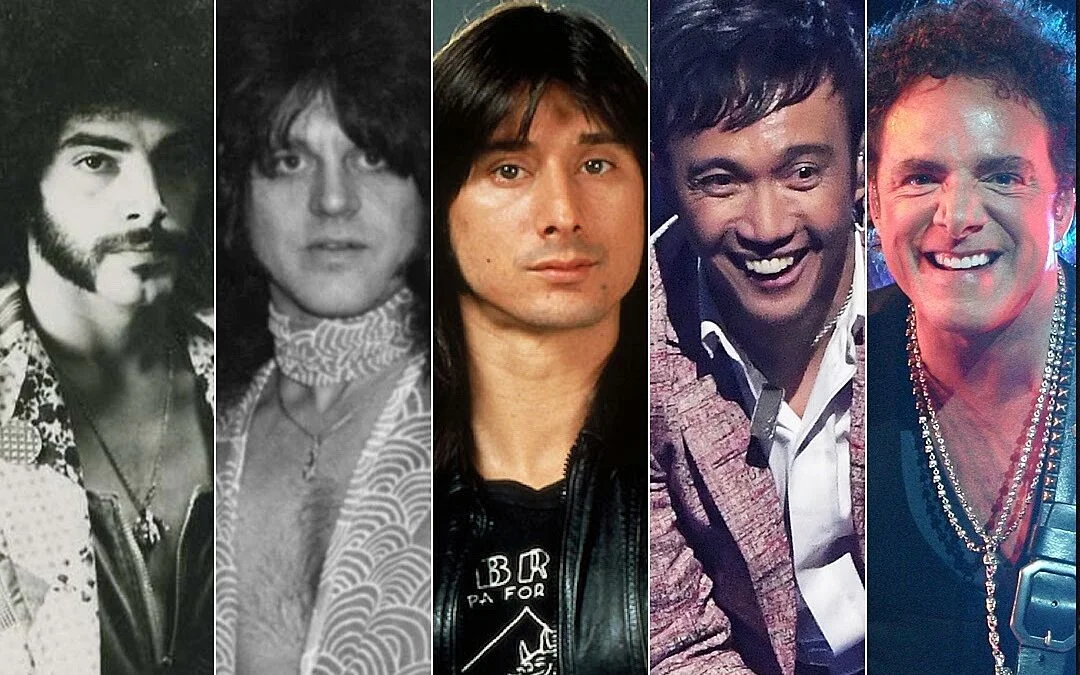
Journey Lead Singers In Order: History and Band Members
In this article, we delve into the captivating history of Journey, an iconic rock band that has left an indelible mark on the music industry. From their humble beginnings to their meteoric rise to fame, Journey has mesmerized audiences worldwide with their unique sound and timeless hits. Join us on a journey through time as we explore the remarkable story of this legendary band.
Formation of the Band
Journey was formed in 1973 in San Francisco, California, bringing together a group of highly talented musicians. The founding members included Neal Schon, Gregg Rolie, Ross Valory, Aynsley Dunbar, and George Tickner. With their combined musical prowess and creative vision, they set out to create something extraordinary.
Early Years and Musical Style
During their early years, Journey experimented with a fusion of rock, jazz, and progressive influences, creating a distinctive sound that set them apart from their contemporaries. Their self-titled debut album, released in 1975, showcased their musical versatility and marked the beginning of their incredible journey.
Evolution and Breakthrough Success
In 1977, Journey underwent a significant change that would forever shape its destiny. Steve Perry joined the band as their lead vocalist, injecting new energy and unparalleled vocal range into their music. This lineup change proved to be a turning point for Journey, leading to a series of chart-topping albums and unforgettable songs.
Chart-topping albums and Hit Singles
Journey’s breakthrough came in 1978 with the release of their album “Infinity,” which became a massive success. The album spawned the hit singles “Wheel in the Sky” and “Lights,” propelling Journey into the mainstream spotlight. They continued their winning streak with subsequent albums, including “Evolution” (1979) and “Departure” (1980), which produced hits like “Lovin’, Touchin’, Squeezin'” and “Any Way You Want It.”
The Iconic Album: “Escape”
In 1981, Journey released their most iconic album to date, “Escape.” This album elevated their status as rock superstars and solidified their place in music history. Featuring the mega-hits “Don’t Stop Believin’,” “Open Arms,” and “Who’s Crying Now,” “Escape” became an instant classic, captivating audiences with its emotionally charged lyrics and powerful melodies.
The Power Ballad Era
Journey’s success continued into the mid-1980s, defined by the rise of power ballads that struck a chord with fans worldwide. Songs like “Faithfully,” “Separate Ways (Worlds Apart),” and “Send Her My Love” showcased the band’s ability to create heartfelt and anthemic ballads that resonated deeply with listeners.
A Change in Direction
As the 1990s approached, Journey faced challenges and underwent significant lineup changes. Steve Perry departed from the band in 1987, leading to a period of transition as they searched for a new lead vocalist. Despite these challenges, Journey remained resilient and continued to produce music that captivated its loyal fan base.
Journey’s Enduring Legacy
Although the band’s popularity waned in the late 1990s, their music never faded from the hearts of their dedicated fans. Journey’s timeless classics continue to resonate with audiences of all ages, thanks to their emotional depth, infectious melodies, and inspiring lyrics. Their songs have become anthems for perseverance, love, and the power of music itself.
Past Journey band members include the following:
- Steve Perry (1977-1998)
- Aynsley Dunbar (1974-1978)
- Robert Fleischman (1977)
- Steve Smith (1978-1985, 1995-1998)
- Randy Jackson (1985-1987)
- Steve Augeri (1998-2006)
Current Journey band members:
- Neal Schon – Guitar (1973-present)
- Jonathan Cain – Keyboards (1980-present)
- Ross Valory – Bass (1973-1985, 1995-present)
- Arnel Pineda – Vocals (2007-present)
- Deen Castronovo – Drums (1998-present)
Lead Singers of Journey
Van Halen Lead Singers In Order: A Journey Through the Years
Black Sabbath Singers In Order: Ever-Changing Lineup of Black Sabbath
The Original Journey: Gregg Rolie’s Era
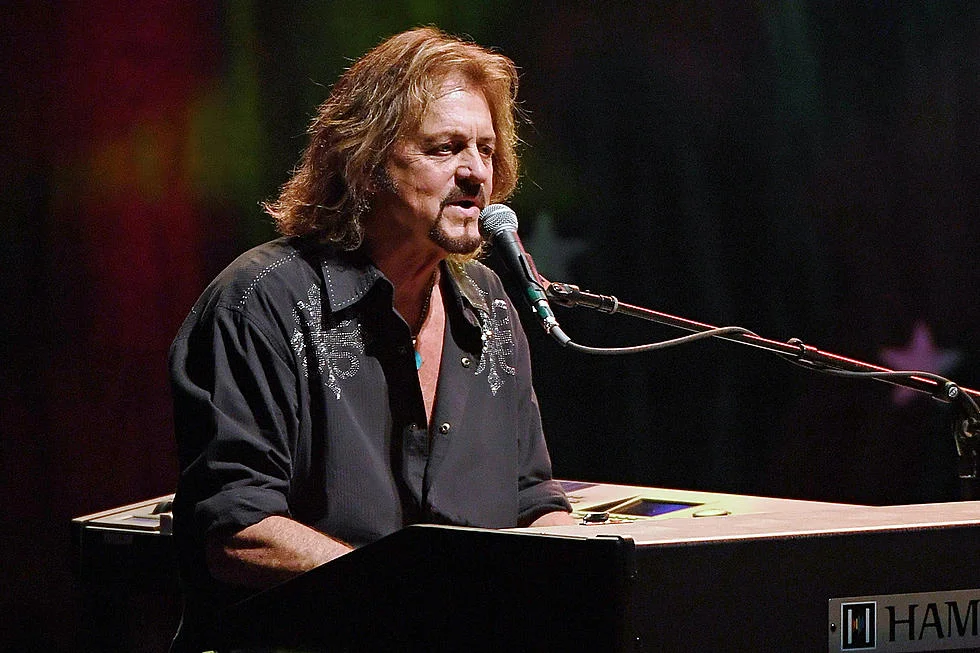
Gregg Rolie, a two-time Rock and Roll Hall of Fame inductee, served as the original lead singer of Journey. He began his musical career as a co-founder and lead vocalist of Santana before joining forces with Neal Schon to form Journey. Rolie’s soulful voice and exceptional skills as a keyboardist and harmonicist contributed to the band’s early success. He showcased his talent on albums like “Journey,” “Look into the Future,” and “Next.” However, Rolie transitioned to co-lead vocals when Steve Perry joined the band in 1977.
Steve Perry: The Voice of Journey’s Greatest Hits
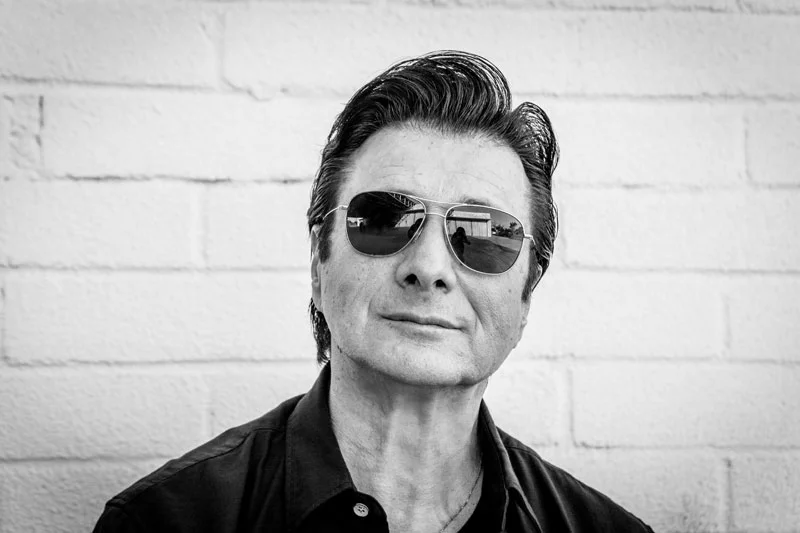
Steve Perry, widely recognized as the quintessential Journey lead singer, propelled the band to unprecedented heights during their most commercially successful era. Born with a gift for singing, Perry’s powerful and emotive vocals struck a chord with audiences worldwide. With Perry at the helm, Journey released a string of chart-topping albums, including “Infinity,” “Escape,” and “Frontiers.” Iconic songs like “Don’t Stop Believin’,” “Open Arms,” and “Faithfully” became anthems for a generation. Perry’s remarkable songwriting abilities and magnetic stage presence contributed to the band’s enduring legacy.
Current Lead Singer: Arnel Pineda

Following Steve Perry’s departure in 1987, Journey experienced a series of lead singer changes. Steve Augeri, known for his vocal range and stage charisma, took over from 1998 to 2006. Jeff Scott Soto briefly joined the band in 2006, leaving his mark with his distinctive style. However, it was Arnel Pineda who breathed new life into Journey as the current lead singer. Pineda’s incredible vocal resemblance to Steve Perry, coupled with his dynamic stage presence, won the hearts of fans worldwide. Since 2008, Pineda has seamlessly integrated into the band, injecting fresh energy and passion into their performances.
Journey’s Enduring Discography: Albums That Defined an Era
Over the past five decades, Journey has released a diverse and extensive discography, showcasing their musical prowess and creativity. Let’s explore some of their most iconic albums:
“ Infinity ” (1978): With Steve Perry as the lead singer, “Infinity” marked a significant turning point for Journey. It featured hit singles like “Wheel in the Sky” and “Lights,” solidifying their place in the rock music landscape.
“ Escape ” (1981): This album became a monumental success, boasting chart-topping hits such as “Don’t Stop Believin'” and “Open Arms.” “Escape” catapulted Journey to international stardom and remains one of their most beloved records.
“ Frontiers ” (1983): Building upon their previous success, “Frontiers” showcased Journey’s evolution with tracks like “Separate Ways (Worlds Apart)” and “Faithfully.” The album’s polished production and memorable hooks solidified Journey’s status as one of the biggest rock bands of the 1980s.
“ Raised on Radio ” (1986): Released during the band’s final years with Steve Perry, “Raised on Radio” featured a more radio-friendly sound and produced hits like “Be Good to Yourself” and “I’ll Be Alright Without You.” Despite tensions within the band, the album showcased their ability to create catchy, melodic rock tunes.
“ Revelation ” (2008): With Arnel Pineda as the lead singer, “Revelation” marked a new chapter for Journey. The album featured new recordings of their classic hits, reaffirming Pineda’s vocal prowess and rekindling the band’s popularity among longtime fans and a new generation.
“ Eclipse ” (2011): Continuing their musical journey with Pineda, Journey released “Eclipse,” a record that showcased their ability to evolve while staying true to their roots. The album demonstrated their enduring songwriting skills and featured tracks like “City of Hope” and “Edge of the Moment.”
“Escape & Frontiers Live in Japan” (2019): As a testament to their enduring appeal, Journey released a live album featuring their performances of the “Escape” and “Frontiers” albums in their entirety. The release showcased the band’s timeless hits in a live setting, capturing the energy and excitement of their concerts.
Journey’s Impact and Legacy
Journey’s impact on the rock music landscape cannot be overstated. With their infectious melodies, anthemic choruses, and powerful vocals, they carved out a unique sound that resonated with millions of listeners. Their music transcended generations, becoming the soundtrack to countless moments and capturing the hearts of fans worldwide.
Steve Perry’s tenure as the lead singer marked the band’s most successful period, and his distinct voice became synonymous with Journey’s sound. His emotional delivery and ability to connect with audiences elevated their songs to new heights and created an unparalleled legacy.
Arnel Pineda’s addition to the band injected new energy into Journey and allowed them to continue their musical journey. Pineda’s remarkable vocal resemblance to Perry breathed new life into the band’s live performances, earning him a dedicated fanbase and ensuring that Journey’s music lives on.
Journey’s timeless hits continue to be celebrated and embraced today. Songs like “Don’t Stop Believin'” have become cultural touchstones, appearing in films, TV shows, and sporting events, and capturing the imaginations of new generations of listeners.
Journey Band Member’s Ages
Here, is the list of all the Journey member’s ages. It seems like all of the Journey band members are above 50 and below 80.
Recommended Posts
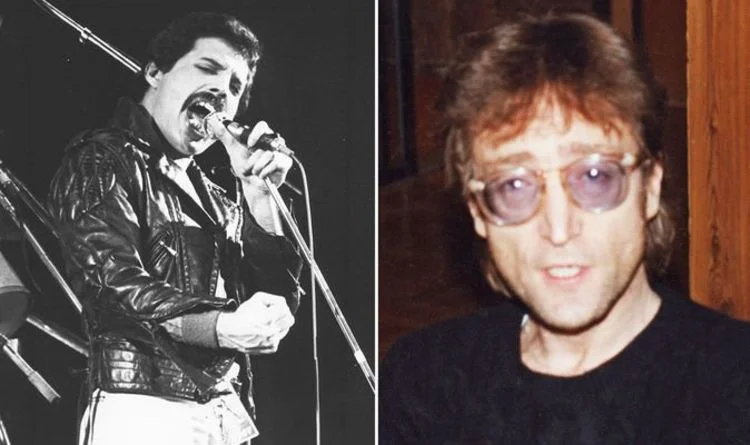
John Lennon’s opinion on Queen
John Lennon was the oldest founding member of The Beatles and was born in Liverpool, England, much like all the other members of the band. He was only 29 years old when the band broke up in 1970, and the music industry had seen rapid turmoil during that decade with the emergence of numerous new […]
Rush’s Geddy Lee gives his opinion on Led Zeppelin
In an interview with Classic Rock magazine, Geddy Lee, the bassist, singer, and occasionally pianist for Rush, shared his thoughts on Led Zeppelin. The Canadian guitarist discussed the band’s sound and offered commentary on their iconic album “Led Zeppelin IV.” Rush’s Geddy Lee gives his opinion on Led Zeppelin: Geddy said, “I had the pleasure […]
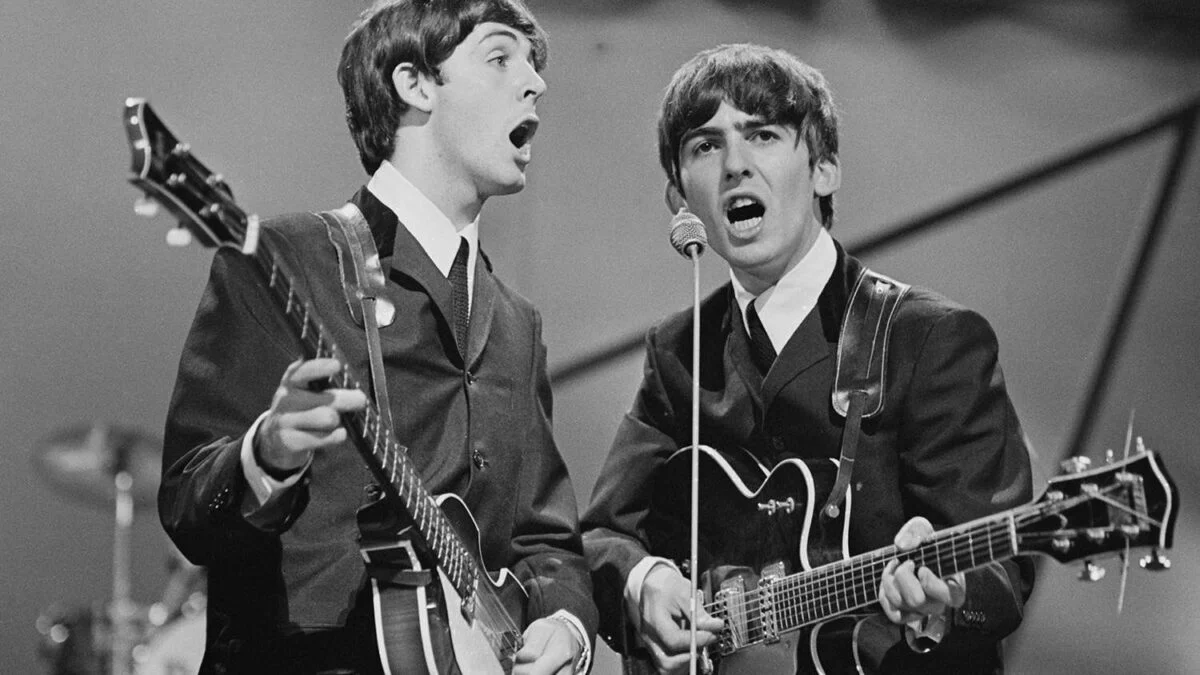
George Harrison’s opinion on Paul McCartney’s solo career
With just 13 studio albums, The Beatles were the most successful and influential band of all time. They sold an estimated 600 million records worldwide, making them the best-selling band in history, and they impacted several generations of musicians. However, John Lennon’s decision to quit the band in 1970 brought an end to the group’s […]
Leave A Comment Cancel reply
Save my name, email, and website in this browser for the next time I comment.
Post Comment
Steve Perry
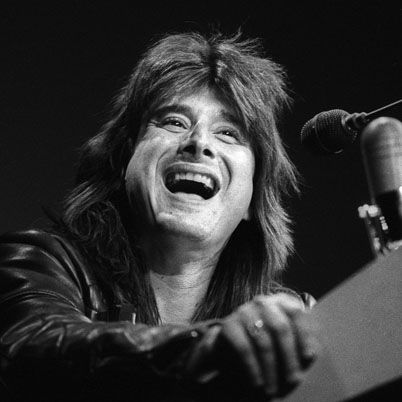
Who Is Steve Perry?
Steve Perry played in several bands before joining Journey in 1977. The band achieved tremendous pop rock success with its 1981 album Escape , which featured the now-classic "Don't Stop Believin'." As the group's lead singer, Perry became one of the era's most famous singers. He also had some hits on his own, including "Oh Sherrie." Perry left Journey in 1987, and except for a brief reunion, he remains a solo artist.
While attending high school in Lemoore, California, Perry played drums in the marching band. He tried college for a while, performing in the choir, but eventually abandoned school for his musical dreams. Hoping to break into the business, he moved to Los Angeles for a time. There, he worked a number of jobs, including singing on commercials and serving as an engineer in a recording studio. All the while, Perry played with a number of different groups as a vocalist and drummer. He seemed to be on the edge of a breakthrough with the group Alien Project, when it suddenly disbanded — tragically, one of its members was killed in a car crash.
Journey: "Oh Sherrie" and "Don't Stop Believin'"
In 1977, Perry caught his big break, landing a gig as the vocalist for Journey, which began performing as a jazz rock group in the early 1970s, in San Francisco. With Perry on board, the band moved more toward mainstream rock, and began to see some chart success with the first album with Perry, 1978's Infinity . The band's ode to San Francisco, "Lights," became a minor hit as did "Wheel in the Sky" and "Anytime."
Journey broken into the Top 20 with "Lovin', Touchin', Squeezin'" on their next album, Evolution (1979). Buoyed by such hits as "Open Arms," "Who's Crying Now" and "Don't Stop Believin'," Escape (1981) became the band's first No. 1 album, selling more than 7 million copies. While the band was hugely popular with music fans, many critics were less than kind.
By the early 1980s, Journey had emerged as one of rock's top acts. Perry proved that while he may have been short in stature, he possessed one of the era's biggest and most versatile voices. He was equally adept at ballads, such as "Open Arms," and at rock anthems, such as "Any Way You Want It." Behind the scenes, Perry helped write these songs and many of the band's other hits. He penned their most enduring song, "Don't Stop Believin'," with guitarist Neal Schon and keyboardist Jonathan Cain.
Journey continued to be one of the era's top-selling acts, with 1983's Frontiers . The album featured such songs as "Separate Ways (Worlds Apart)" and "Faithfully." To support the recording, the band undertook an extensive world tour. Around that time, Journey also became the first band to license their music and likenesses for a video game.
With 1986's Raised on Radio , Journey enjoyed another wave of success. However, Perry was ready to part ways with his bandmates. Perry left the band in 1987 after the album tour. In a statement to People magazine, Perry explained: "I had a job burnout after 10 years in Journey. I had to let my feet hit the ground, and I had to find a passion for singing again." Perry was also struggling with some personal issues at the time; his mother had become very sick, and he spent much of his time caring for her before her death.
Perry reunited with Journey in 1996, for the reunion album Trial By Fire , which reached as high as the No. 3 on the album charts. But health problems soon sidelined the famous singer—a hip condition, which led to hip replacement surgery—and his bandmates decided to continue on without him.
Solo Projects
While still with Journey, Perry released his first solo album, Street Talk (1984). The recording sold more than 2 million copies, helped along by the hit single, "Oh Sherrie." Burnt out after splitting with Journey, Perry took some time out before working on his next project.
Nearly a decade later, Perry re-emerged on the pop-rock scene with 1994's For the Love of Strange Medicine . While the album was well-received—one ballad, "You Better Wait," was a Top 10 hit—Perry failed to reach the same level of success that he had previously enjoyed. In 1998, he provided two songs for the soundtrack of Quest for Camelot , an animated film. Perry also released Greatest Hits + Five Unreleased that same year.
Recent Years
While he has largely stayed out of the spotlight, Perry continues to be heard in movies and on television. His songs are often chosen for soundtracks, and Journey's "Don't Stop Believin'" even played during the closing moments of the hit crime-drama series The Sopranos in 2007. In 2009, a cover version of the song was done for the hit high school musical show Glee , which introduced a new generation to Perry's work.
According to several reports, Perry began working on new material around 2010. He even built a studio in his home, which is located north of San Diego, California. "I'm finishing that room up and I've written a whole bunch of ideas and directions, all over the map, in the last two, three years," Perry told Billboard in 2012.
In 2014, Perry broke from his self-imposed exile from the concert stage. He appeared with the Eels at several of their shows. According to The Hollywood Reporter , Perry explained that "I've done the 20-year hermit thing, and it's overrated." His return to performing "has to do with a lot of changes in my life, including losing my girlfriend a year ago and her wish to hear me sing again" — referring to his romance with Kellie Nash, who died in late 2012 from cancer.
Although Perry and his old bandmates had long since ventured in separate directions, the group did reunite for their induction into the Rock and Roll Hall of Fame in April 2017.
In the meantime, the singer began recording again. On August 15, 2018, he released his first new song in 20 years, the ballad "No Erasin." The track arrived ahead of his new album, Traces , his first full-length studio recording since For the Love of Strange Medicine in 1994.
Regardless of what the future holds, Perry has already earned a place in rock history. Rolling Stone magazine named him one of music's top 100 singers. According to American Idol judge and former Journey bassist, Randy Jackson, Perry's voice is one of kind. "Other than Robert Plant, there's no singer in rock that even came close to Steve Perry," Jackson said. "The power, the range, the tone—he created his own style. He mixed a little Motown, a little Everly Brothers, a little Zeppelin."
QUICK FACTS
- Name: Steve Perry
- Birth Year: 1949
- Birth date: January 22, 1949
- Birth State: California
- Birth City: Hanford
- Birth Country: United States
- Gender: Male
- Best Known For: Steve Perry was the lead singer of pop rock band Journey from 1977 to 1987. He is known for having a wide vocal range, which can be heard on such popular hits as "Don't Stop Believin'" and "Oh Sherrie."
- Astrological Sign: Aquarius
We strive for accuracy and fairness.If you see something that doesn't look right, contact us !
CITATION INFORMATION
- Article Title: Steve Perry Biography
- Author: Biography.com Editors
- Website Name: The Biography.com website
- Url: https://www.biography.com/musicians/steve-perry
- Access Date:
- Publisher: A&E; Television Networks
- Last Updated: July 23, 2020
- Original Published Date: April 2, 2014
Famous Musicians
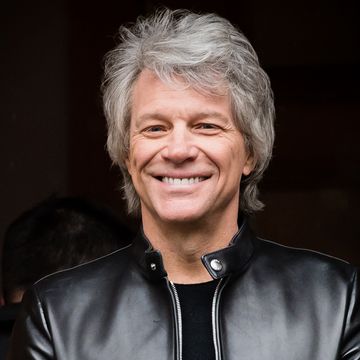
How to Score Tickets to Pitbull's Tour

Mick Jagger
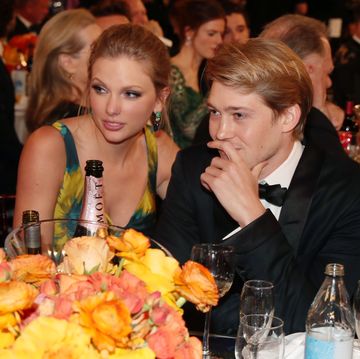
Taylor Swift and Joe Alwyn’s Private Relationship

Taylor Swift
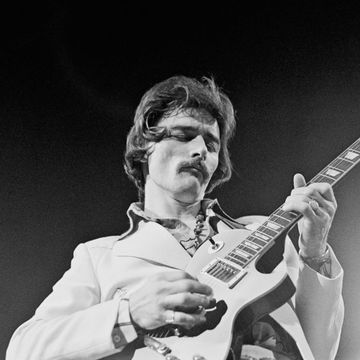
How Dickey Betts Wrote “Ramblin’ Man“
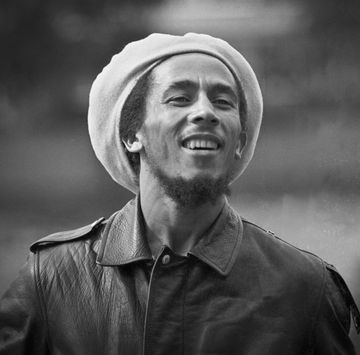
How Did Bob Marley Die?

No Doubt Surprises Fans With Olivia Rodrigo

Lana Del Rey

Journey Frontman Arnel Pineda on the Band’s New Record, Dreams of a Steve Perry Reunion
By Andy Greene
Andy Greene
In early 2020, Journey frontman Arnel Pineda flew back to his native Manila after playing a corporate gig in Texas. He was gearing up for a big year in which Journey would cut their first new record since 2011’s Eclipse and play amphitheaters all over North America with the Pretenders.
The pandemic changed all that and he’s been in Manila ever since, but Journey still found a way to work remotely on the record. It’s their first full-length since parting ways with drummer Steve Smith and bassist Ross Valory. They were replaced by bassist Randy Jackson (who briefly toured and recorded with Journey in 1986–87) and drummer Narada Michael Walden, who’s doubling as the album’s producer.
We checked in with Pineda via Zoom to talk about his lockdown life in Manila, the in-progress Journey record, the upcoming biopic about his life, and why he still dreams about a Journey reunion with Steve Perry.
How are things going? Good. I arrived here in Manila last year just a week and a half before the lockdown began. I was lucky. Otherwise, I would have been stuck in America for six months before they let me back.
This must be the longest stretch of time you’ve been home since you joined Journey in 2007. Yeah. This is the longest. I like it because I got to spend a lot of time with family and the kids and more time with myself and my wife. There are other things I would rather do than tour, so I got the chance to be here. In a negative way, it’s quite bad. The survival here is a day-to-day deal. I’m the one that goes out a lot. I’m the one that goes to the market and the grocery to refill our food stocks.
You wonder if you have the virus every day. There’s a lot of paranoia going around. It’s like what is happening in America.
Do you miss playing live? Yeah. I especially miss the energy and the adrenaline of doing it. I’m delivering on the legacy that the Voice [Steve Perry] has left behind. Especially now that he formally passed the torch to me in 2017 [at the Rock and Roll Hall of Fame induction], he made that known and he was very gracious. It was very kind of him. It was so generous of him to say that in public. It was really an honor.
What was it like to finally meet Steve after all these years? I posted on Instagram that I had waited 35 years for that. It was dreamy. I couldn’t believe I met him since he’s very reclusive and he avoids people. He didn’t want to get interviewed, at least until he released his new record [ Traces ] and then suddenly he was out there, going to radio stations and accepting interviews.
Editor’s picks
The 250 greatest guitarists of all time, the 500 greatest albums of all time, the 50 worst decisions in movie history, every awful thing trump has promised to do in a second term.
I was really surprised that he agreed to meet me. It’s one of the most special things that happened in my life. He’s one of my heroes when it comes to singing. I remember back in the Eighties, I would sleep on the bus with my Walkman on in my ears as his voice sang all these favorite songs from Journey.
I really dug his new record. It was amazing. I’ve been teasing Jonathan [Cain] and Neal [Schon]. “Why don’t you invite Steve Perry over for a tour?” Oh, my God. I never saw them back in the Eighties. I was just a young kid in Manila, just playing around, with no chance of going to the States and seeing their show, but they were one of my favorite bands.
I’ve spoken to Steve a bunch of times in the past few years. We even talked just a few weeks ago. Oh, my God!
Judging by our talks, I’m extremely confident that he’s happy to leave the Journey baton with you. That’s even more pressure I’m getting, hearing this from you. At the same time, I’m truly honored. But I’m not losing [the hope] that one day he’ll join the band for two or three songs. It would be one of the highlights of my life if that happens.
It would almost be on the scale of Led Zeppelin or Pink Floyd re-forming at this point. My God. It would be the same thing for me with Led Zeppelin because I haven’t seen them either, or Pink Floyd. I wish they would be complete again. It’s like completing a circle, being back up onstage again.
Do you think this long break has been good for your singing voice? Has it given you time to rest the muscle? I think so. At the same time, I can’t help but sing four or five songs here every day. The problem with the voice is that it changes as you grow older. It’s like athletes. They reach their peak on their 30th birthday. As they approach 31 or 32, it starts to change. It’s the same with my voice. I just want to make sure I can be of use to the band until they decide to throw the towel in.
Those are hard songs to sing for any singer. You guys go out and do 60 straight concerts in the summer and you need to hit the high notes on “Faithfully” every single time. That would be hard for anyone at any age. We’ll do five or six shows a week. I’m just quite amazed with myself a little. Somehow I was able to take it for 13 years. Let’s see what’s going to happen in the coming days. We’re on to finishing the album. We finished six songs so far. There’s talk of going out somewhere first, maybe Las Vegas for a residency. We don’t know yet. We haven’t decided. Just to break the ice between the new members and us.
You have six songs totally done? Yeah. And maybe seven songs to go.

Journey's Bassist Ross Valory Opens Up About the Band's Saga — And His Adventurous Solo Album
Watch miley cyrus cover journey's hit '80s anthem 'faithfully'.
Are these ballads? Rockers? For now, we’re doing the rocker songs first, not the ballads. I think the seven songs they’re working on, they’re working on something huge, like how you’ve known Journey doing ballads. It’s between [1981’s ] “Mother, Father” and [1978’s] “Winds of March.” We’re working on that song. We’ll see what happens. I’m waiting for them to send me the demos so that we can record it next week.
Working remotely like this must have been an adjustment. Normally, you’d be in the room together. I know. It’s quite hard right now. I have a few melody ideas that I’m into and want to share with them, but you can’t right now because of what is happening. I just have to listen to it and learn it. We use Zoom to record and I turn on my laptop and go into Logic Pro. They get ahold of it. If there’s something I want to change, I tell them. But it’s all pretty much done and I just record with them.
Are you doing the vocals on your laptop? Yeah. I’ll show you [ turns camera around and shows a microphone plugged into a computer in front of soundproofing foam ]. I share my computer, like mirroring. They can see what’s happening in my laptop. It allows them to hack it for a moment and then they can hear it. It happens in real time.
There’s no lag. I can hear that right now while we talk. It’s like you’re in the next room and you’re actually more than 8,000 miles away. Yeah. Thank God for the technology.
Do you think the album will come out this year? I think so. Neal thinks so. He can’t wait to release it before we do a full-on tour.
How do things sound different now that Randy Jackson and Narada Michael Walden are in the band? It’s somewhat like the sound back in the Eighties when Randy Jackson joined the band for the Raised on Radio album. It’s kind of like that, but it’s also more updated. Narada is producing my vocals and mentoring me on how to do it. He’s telling me to sing it this way and that way. It’s amazing. I’m learning a lot from Narada. It’s truly an honor and I appreciate him for doing so. It’s amazing.
Has the band even been in the same room yet? Have you met Randy and Narada in person? Right now, it’s just been virtual. It’s tough. I wanted to do it. I keep telling Neal, “If only I had been there, we would have done this in two months. Sorry it’s taking so long.” But with all these health protocols where you need to quarantine for two weeks, and then I come back and I’d be quarantined for another two weeks before I can join my family. It’s too much of a hassle, so we decided to do it this way even though Neal isn’t too happy about it. He wants it the old, classic way of making an album.
Moving on here, what’s the status of the movie about your life? It’s going to happen. I think they’re gonna start. Some people from Warner will start coming here. I think maybe with [ Crazy Rich Asians director] Jon Chu and [ Joker and The Fighter screenwriter] Scott Silver. They might come here to audition actors and actresses that will take part in my biopic.
Are you going to take them around town and show them the places you grew up? Yes. That’s the deal, of course. I want to show them where I grew up, where I was born, where everything happened before this whole magical thing.
Do you think the story will start in your childhood and show all your early bands and struggles and focus on the pre-Journey period? I think so, yeah. That’s the plan. I’ve spoken many times with Scott Silver. What’s interesting about my story is that I’ve survived two coup attempts here in the Philippines before I went to Hong Kong for 10 years. I don’t know he if plans to tell what happened to me in Hong Kong, but I had 10 years there. He might focus on my love story with my wife now.
I can see the grand finale in my head. It’ll be you walking onstage in Chile at your first Journey show. You’re nervous and they push you out and you burst into “Separate Ways.” Yeah. I was trying to back out five minutes before. I was like, “Neal, I cannot do this. This is not built for me.” They were like, “No. It’s too late. Get out there and do it.”
It was the turning point of your life. Everything is either before that moment or after that moment. You should tell Scott Silver about this idea. I’ve been implying it to him that we should end everything in Chile. And I remember when my wife decided to join me on tour in 2011. We were playing to a 30,000 crowd that night. I was telling my wife, “Remember Hard Rock Cafe when there were only three tables? Now it’s 30,000 people.” It was just unbelievable. It doesn’t get old to me. It’s still so surreal and bizarre.
I saw you at Citi Field with Fleetwood Mac and Madison Square Garden with Def Leppard. I could tell you were still having a blast. It’s still unbelievable. I’m just so blessed. I can’t thank them enough, especially Neal Schon. He was the one that was really sold that I am the one since 2007. But then again, I still think, “If only they could bring back Steve Perry.” You know what I mean?
I do, but if he came back, that would mean … I know, but I miss them so much together. Every now and then, I watch their videos together. It’s always them with Steve Perry that I watch. I mean, no offense to Adam Lambert. He’s an amazing performer and he has an amazing voice, but I still watch the old [Queen] ones with Freddie Mercury. That’s why when people say things like “No Perry, No Journey,” I understand it. Where I come from, we’re so influenced by Western music. We loved the originals, if you know what I mean.
His return would put you out of a job. That would be OK to me! I’m telling you. That’s how much I adore him and I adore Journey and how much I adore Steve Perry. Back in 2005, I resigned from my job in Hong Kong because I lost my voice due to acid reflux. I was telling my friends back then that my only regret was I lost my voice before I had the chance to sing side-by-side with Steve Perry. I was joking with them, but then a different situation happened. I just wish that one show with him … it would change my life forever. It’s been 30 years now and the band keeps changing my life in ways nobody would ever guess would happen.
Do you miss Ross Valory and Steve Smith now that they’re out of the band? I do, of course. We had a real bond that nobody can deny. [ Sighs ] When the first day came that Steve Smith went back, I could feel that he was trying to feel everything out and observe. When he got the good vibe again, we clicked. Four years with him was very special. And 11 years with Ross was amazing. I cannot ask for anything more. Those friendships I’ll take with me until the end of time.
The group has dealt with a lot of tensions and feuds during your time with them, but you always remain neutral and out of the fray. How do you do that? I try to stay away. It’s like, “Oh, the big boys are fighting.” I’d rather stick to my guns, which is just singing and delivering the legacy with them onstage. When we’re up onstage, I think everyone forgets their differences behind the scenes. That’s my happy place. When they’re having some petty quarrels, I try to stay away. I talk to everybody without having to talk about their differences.
Your White House visit caused a bit of controversy. Do you have any regrets about going there and meeting Trump? I do not. As a Filipino, I am such a big fan of the White House. It’s not about Trump. It’s not about who the president is. It’s the whole history of the White House. I was just amazed. When I went there, I looked at all the pictures of past presidents and how old everything was. And then the table where President Trump was seated was about 100 years old. Who wouldn’t want to see that? Who wouldn’t want to touch that?
His presidential guard was laughing at me because President Trump was talking to the other members [of the band] and I was just mesmerized by the table. I was like, “Wow! This is truly 100 years old?” I’m just a kid from Manila and I was in the White House for the first time, so no regrets. I guess I didn’t even have a chance to apologize to Neal. He must understand. I’m just a kid from Manila that wants to see the White House, in general.
What’s the status of your next solo record? I’m doing it right now. I’m just waiting on a couple of friends that are helping me finish it from the States. Because of the recent banning of some countries from coming in here, we got delayed. I’m expecting them to arrive here at the end of March instead of the end of January. Even my online streaming concert was moved to April 18th. It was supposed to happen in February. To those who want to get a ticket, it’ll be at sanrestreaming.com .
Back to the movie, do you think being on set and watching someone play a younger version of you will be a surreal experience? It will be weird, but it’ll be weirder if I am there portraying myself! [ Laughs ] I will not be able to stand there and look at myself. I don’t really listen to myself singing either. When the documentary Everyman’s Journey came out, I could barely watch it. The premier was in Tribeca. I was like, “Do I really have to watch this and see myself on the big screen?” I was cringing.
Do you think the actor in the movie will actually sing, or will you provide the vocals? I think I’m going to use my voice. Do you remember the Queen movie [ Bohemian Rhapsody ]? Marc Martel did the voice. I think I’m going to do that too.
I can’t wait. Crazy Rich Asians is a great movie. Jon Chu really knows what he’s doing. It’s unbelievable that he took notice of my life and my story and wants to make a movie out of it. It really humbled me.
They should film it in Manila and not somewhere else. It should look authentic. They definitely will. There’s so much to remember, I’m telling you. At one point in my life, I was really on drugs. It quite affected my memory. I need to recover all those things that happened to me when I was young. But I’ve recovered a lot of my childhood memories. Scott Silver is quite happy with what I was able to tell him.
I’m very hopeful that before 2021 ends, you’ll be back onstage with Journey. Me too. I can’t wait to see those smiling faces and that rolling-thunder sound of the audience. It’s quite an adrenaline [rush] when you experience that every night. That’s what keeps you going.
Slipknot Announce Here Comes the Pain Summer Tour
- Ready to Scream
- By Tomás Mier
Kendrick Did Everything He Needed to on ‘Euphoria’
- By Andre Gee
Jennifer Lawrence and Amy Schumer Have Scrapped Their Sisters Comedy
- By Jon Blistein
Kesha and Adam Lambert Headline Free WeHo Pride Concert at Outloud Fest
- For the Gays
Missy Elliott Joins Pharrell and Michel Gondry's Coming-of-Age Musical
- Hamptons Road Heroes
Most Popular
Nicole kidman's daughters make their red carpet debut at afi life achievement award gala, ethan hawke lost the oscar for 'training day' and denzel washington whispered in his ear that losing was better: 'you don't want an award to improve your status', louvre considers moving mona lisa to underground chamber to end 'public disappointment', sources gave an update on hugh jackman's 'love life' after fans raised concerns about his well-being, you might also like, fubo drops warner bros. discovery networks, including hgtv, food networks, discovery, philadelphia fashion incubator offers young designers’ lines in new location, the best yoga mats for any practice, according to instructors, join indiewire and disney for our fyc ‘abbott elementary’ panel on may 20 at vidiots in la, details matter: ncaa settling house and carter won’t end legal woes.
Rolling Stone is a part of Penske Media Corporation. © 2024 Rolling Stone, LLC. All rights reserved.
Verify it's you
Please log in.
Start believin': The story of Journey's Infinity album
By 1978, Journey had a loyal muso following but were still looking for their breakthrough. What they needed was a singer would could turn their improvisations into anthems. Cue one Steve Perry...
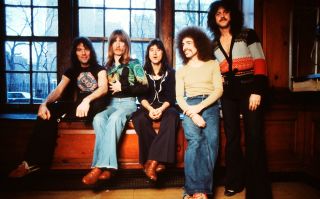
“If I had the chance I would do it all again exactly the same way,” says Steve Perry. “I swear to God. I would not hesitate for a minute.”
Steve Perry is on the phone. The commonly held notion that he’s a dark and sombre recluse couldn’t be further from reality. He’s a veritable ball of energy, dispensing charm and cheer like it was going out of fashion. Before long he’s singing down the phone, and hinting that he wants to stop kicking his heels and put a ‘section’ together (that’s old-school parlance for a band).
We’re hooked up to talk about Journey’s fourth album, 1978’s Infinity. Steve doesn’t give many interviews, but he speaks at length and opens his heart about a record that changed his life, and the course of history for his band;
a record that heralded the arrival of one of the greatest voices of our time, and set Journey on a crash course for superstardom that would ultimately result in their 1981 anthem Don’t Stop Believin’ becoming, in 2009, the best-selling song from the 20th century on iTunes (currently seven million downloads and counting).
All the facts and figures in the Journey story complete a cluster of astonishing accomplishments which are the envy of the music industry. Achievements that, in today’s music marketplace, would be almost impossible to duplicate. For a good 12 years, Journey took position at the very top of the food chain, releasing album after album of instantly recognisable songs all embellished with clear-cut hooks and melodies to die for.
These are records that have stood the test of time, and because of the musicianship inherent in each and every song they have never sounded dated. In many ways, then, Journey were not only pioneers of a style but they were also uniquely aloof – in a league of their own and a world away from the processed, hard-on-the-ears clamour of similar-sounding acts trying to carve out a slice of the same market.
When all is said and done, it was Steve Perry’s presence that really cemented the band’s reputation. Prior to his arrival Journey had been a fairly inconspicuous and mainly instrumental fusion outfit, looking to muscle in on the jazz-rock scene perpetrated by the likes of Weather Report and the Mahavisnu Orchestra.
Classic Rock Newsletter
Sign up below to get the latest from Classic Rock, plus exclusive special offers, direct to your inbox!
Great players, Journey’s early style and meticulous arrangements would, inevitably, limit their appeal unless radical changes were implemented. Their sound had attracted stellar critical reviews but, as a commercial entity, they were stuck in a rut. Not surprisingly, at the behest of their label, Columbia, changes needed to be made, a radical remodelling of the band was demanded to expand their appeal.
Infinity marked Perry’s initiation into the world of professional recording, a milestone in contemporary aural acrobatics. Within the confinement of 10 songs he effortlessly switched from breezy improvisation ( La Do Da ) to epic bombast ( Wheel In The Sky ), providing a template from which future creative diamonds would emerge, forever cementing the appeal of Journey and securing his place in rock’s vocal Hall Of Fame.
- Steve Perry on Infinity, track by track
- Journey’s Cain says it’s time for band to put Neal Schon spat behind them
- Def Leppard and Journey announce massive 58-date North American tour
Unlike the brusque delivery of British blues-belters such as Coverdale and Rodgers, Perry’s reference points evolved from diverse and somewhat unexpected sources, including the sweet soul sounds of Sam Cooke and Smokey Robinson.
Born in California in 1949, Steven Ray Perry was of Portuguese extraction. The family’s original name of Perrera was quickly anglicised to Perry when the family had entered the US, to disguise the fact that they were European immigrants (a common policy back then to improve employment opportunities). Growing up, his epiphany moment was hearing the Sam Cooke song Cupid on the radio while riding in his mother’s car. From that moment on, becoming a musician was all he dreamed of.
By his teens, Perry was a veteran of several garage bands, singing and drumming with names such as The Nocturnes, Dollar Bills, Ice (also featuring future producer Scott Matthews) and The Sullies. He even joined a Toronto-based unit called Privilege and toured Canada.
“They were a 12-piece brass group that had played in my home town near Fresno,” says Perry. “I was so blown away by how amazing they were I kept in touch with the guitar player, one of two brothers, Andy and Harry Krawchuk, and they hired me for a few months. I toured Canada with them – they were a very high-end covers band.”
By the mid 70s, Perry focused all his energies upon infiltrating the music business and moved to Los Angeles, where he formed a band called Pieces alongside experienced musicians like Cactus/Beck Bogert & Appice bassist Tim Bogert, guitarist Tim Denver Cross and drummer Eddie Tuduri. Sadly no deal was forthcoming. Bogert and Tuduri then moved to the UK to join British prog rockers Boxer.
In order to support himself, Steve took a gig as a second engineer at Crystal Studios while piecing together his next outfit, called Alien Project (the group occasionally switched to the moniker of Street Talk, which Steve later used for the title of first solo album). It was this unit that caught the ear of a couple of labels, including Chrysalis and Columbia. The latter’s A&R man, Michael Dilbeck, was hot to sign them.
The group featured drummer Craig Krampf who would later go on to become an in-demand session musician.
“Craig had some contacts in the business,” says Steve, “enough where he could pick up the telephone and call them. He was really good at hustling and got us into Chrysalis and Columbia. Michael Dilbeck was one of the Columbia people who heard Alien Project and liked it. He talked with Don Ellis who was running the West Coast office. They were thinking of signing the band.
“Back in those days, the sweetest thing that could happen was signing to a record label and making a record – that was the pathway of dreams for all of us. Michael liked the band, but I must say the demo got kind of shelved a little bit, meaning he liked it but wasn’t really moved to sign us right away. So we were kind of vacillating, thinking should we go back to Chrysalis who had been pretty excited. Then the next thing that happened was, someone at Columbia decided to go around Michael and send my demo tape to Herbie Herbert, Journey’s manager, in San Francisco.”
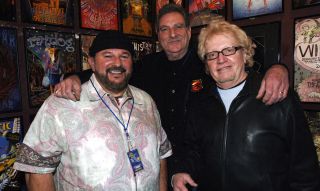
It’s impossible to talk about Journey without the towering presence of their manager Herbie Herbert, a bear of a man with a personality and reputation that, at times, has almost seemed to eclipse (pun intended) the band. Think Peter Grant, if he weren’t quite so intimidating and wasn’t surrounded by henchmen with fists at the ready. Herbie loved music and loved Journey. He dedicated his life to their needs and to the advancement of their career. He had a vision and nobody was gonna fuck with it, and recruiting a vocalist to the group was paramount to his plan.
In Steve Perry, Herbert had found the proverbial needle in the haystack – a vocalist with unlimited range, unique delivery and looks that killed. The consummate frontman, in fact. There is every reason to believe that Perry singlehandedly rescued Journey from interminable underachievement.
“This is where its gets complex,” Steve says, of his initial meeting with Herbert. “Herbie had already heard my name. I was mentioned to him by one of his team, Jackie Villanueva. Jackie had a friend in Frisco by the name of Larry Luciano who, as it happens, was a childhood friend of mine. We had grown up together. Larry had moved up there and become friends with Jackie and the Santana clan. That’s when he and Larry became friends with Herbie.
“Larry told him that he had a cousin called Steve Perry and that I was a pretty good singer and he should check me out. That never came to fruition until the guy at Columbia sent the Alien Project demo tape to Herbie, who saw the name and thought, ‘Steve Perry… Hmmm… Larry’s cousin?’ And of course it was. Then Herbie called me up and said, ‘I love the way you sing, I love what you’re doing and I love the band.’”
However, this budding relationship between Herbert and Perry was suddenly derailed due to the tragic death of Alien Project’s bassist Richard Micheals Haddad, who was killed in an automobile accident on the July 4th weekend. The rest of the band felt like the rug had been pulled from under their feet.
“We were due to resume talks with the labels after that weekend but, of course, it never happened,” says Perry. “I started to pack it in and called my mom to say, ‘I’m coming back home.’ It felt like the closer I got to achieving my dream, the bigger something in my life would say ‘no’. At that point I’d never been so close to someone who had died and I thought, ‘I’m not supposed to do this.’
"I was so distraught and knocked back by it all. But my mother said, no, don’t give up – something will happen. And that’s when I got a telephone call from Don Ellis, who said, ‘I’m sorry to hear about your bass player, but Herbie Herbert has your tape and he loved it. We have Journey on Columbia and we’d love you to be the singer of that band. What do you think about it?’
“I had seen Journey come to town and play many times in LA and I knew that my voice with Neal Schon’s guitar would be like salt and pepper.
"I knew that if I could ever work with him that would be a dream. It was Neal who really attracted me to that set up.”
Journey’s origins go right back to the beginning of the 70s, with the band members based in San Francisco, the centre of hippy counterculture. Keyboard player Gregg Rolie was a founding member of Santana, immortalised by the group’s stunning appearance at the Woodstock festival. The footage of Rolie trashing the living daylights out of his organ during Soul Sacrifice became iconic.
Guitar prodigy Neal Schon was also cooking up a name for himself in the Bay Area, not only as another alumni of Santana but also by working his way through a number of musical cabals, including Latin rockers Azteca and the Golden Gate Rhythm Section. Joining Journey on bass was Ross Valory and second guitarist George Tickner, both of whom were from the curiously named Frumious Bandersnatch. The band’s first drummer was Prairie Prince from fellow SF band The Tubes, but he was quickly replaced by British ex-pat Aynsley Dunbar, who had moved to the US to play with Frank Zappa’s Mothers Of Invention.
Journey’s interest in experimental jazz-fusion was confirmed on their self-titled debut album issued in 1975. A classy work, the album resonates with a surety beyond their recent formation, all players coming across as both fluid and experienced. Neal Schon in particular rips up his fretboard like combination of Jeff Beck and Robert Fripp. Check out the seven-minute long Kahoutek where he trades call-and-response licks with Gregg Rolie.
Surprisingly for such complex music, the album sold moderately well, reaching No.138 on the Billboard chart. After George Tickner bailed out of the band, their next two albums – 1976’s Look Into The Future and 1977’s Next – repeated the pattern, with Gregg Rolie making a concerted effort to deliver reasonably effective vocals atop what was clearly a jazz-fusion fanfaronade.
Despite the concerted efforts of both Columbia Records and Herbie Herbert, it was clear that Journey had reached a sales ceiling. They could continue no further in an upward trajectory unless major changes were implemented. Effectively this meant adding a proper vocalist/frontman and modifying the musical direction. It was a bitter pill to swallow but the band took it on the chin and cast their net to see what was possible.
They settled on Californian Robert Fleischman, who teamed up with the band in June 1977, at the request of label president Bruce Lundvall, who asked Robert to fly to San Francisco and see the band. Fleischman rapidly assimilated with his new bandmates, co-writing a handful of songs, three of which – Wheel In The Sky, Anytime and Winds Of March – would later surface on Infinity . Pretty much an unknown, Fleischman was, at one point, in the running to replace Peter Gabriel in Genesis for their A Trick Of The Tail album, a move scuppered when Phil Collins made a last-minute decision to step up to the microphone.
Things were moving swiftly – if not completely smoothly – when, as previously mentioned, Steve Perry’s name entered the frame. Fleischman had been out on the road with Journey during the summer, supporting Emerson, Lake & Palmer, and matters had progressed to the point where it was understood by all that Robert was their new vocalist. Behind the scenes, however, Robert had apparently been ruffling feathers. Herbie was seemingly concerned that Fleischman was unwilling to relinquish his previous manager, well-known US concert promoter Barry Fey. A reputed incident where Robert allegedly refused to go onstage unless the band played newly written material may not have helped matters either.
By now Herbie and Columbia were coming to the same opinion: that Steve Perry would be the better option for Journey frontman. Matters accelerated when Herbie asked Steve to go out on the road with the band to get to know each other. Fleischman was unaware of his diminishing status within the set up, which resulted in an uncomfortable situation. Perry’s presence in the Journey camp was explained by passing him off as Jackie Villanueva’s Portuguese cousin.
“That really only happened one time,” says Perry. “I think it was when they were playing a show at Long Beach Arena, and I don’t think Robert was actually performing with the band – he was doing soundchecks with them. I think they had pretty much told him he was going to be the singer. I was also told that internally they were conflicted about it. I said to John Villanueva [brother of Jackie, and also part of Herbie’s management team] at the Oakland Coliseum,
‘Do you think this could really happen?’ And he said ‘yes’. So I was hanging around, waiting for my opportunity.
“Actually, it should be pointed out – and I only found this out a few years later – that the label had told the band that if they didn’t get a singer they were going to drop them.”
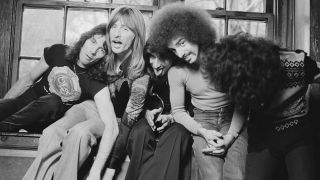
Gregg Rolie has some further insight.
“At the time Neal and I were looking for someone with more of an edge, but Herbie brought us Steve Perry,” he says. “We thought that he was a bit of a crooner and we were looking in a different direction. Robert is a great singer, but there was a lot of politics with the record company and various other things that took place there. They’re two very different singers.
“Steve actually came out on the road with us as my keyboard tech John’s cousin,” confirms Gregg. “We had to make the change, and it was a difficult thing to do, but Robert made a bit of a mistake. We were opening for ELP and he kind of made an ultimatum in Fresno, that he wanted us to play the new songs, but we were just trying to get the band across. We wanted to do the older material because it was more in keeping with the audience.
“He said he wouldn’t go on and that was a mistake on his part. Herbie made the decision right there to fire him. Nothing was really written in stone until that happened. For me, it’s now water under the bridge. I like Robert a lot and I liked what he brought to the situation. Robert has more of an edge but they’re both quality guys. It’s always a struggle.”
Did Steve feel that he had been forced upon the band by the label and Herbie?
“He [Herbie] said in essence, if not the actual words, ‘This is your new singer, deal with it,’” says Perry. “I don’t think I would have been in the band if Herbie had not just said, ‘Look guys, get used to it, keep going and shut the fuck up and write the music.’ Herbie and I have had a lot of artist/management collisions across the years.
"We accomplished so much together but it’s almost normal that artists and management have their issues. That being said, had it not been for Herbie my life would be profoundly different right now. He gave me my chance.”
Gregg: “In the end we made the right choice. Quite frankly, Herbie presented it as ‘this is your new singer’ and we were like, OK. And the fact is, he was absolutely right. Y’know, the proof is there.”
Did the band embrace Steve or were they a little apprehensive?
“You have to remember that the band had recorded three records and toured extensively,” says Perry. “Herbie was very talented in his ability to get that band to open for some very big acts – ELP and Santana – and play big outdoor shows. However, even though that was happening, they weren’t selling enough records. I think they wanted to make it on their own terms, so maybe it was a little weird for them to have to bring in a singer.
“Neal Schon was the guitar prodigy and stood centre stage. The group was built by Herbie around Neal, showing off his virtuosity. They had more of an instrumental Mahavishnu Orchestra thing going on, so it was a transition for them. Sure, I think we had our moments of difficulties with me being the new guy, so for a while I had to sort of walk on thin ice.
“It was a ‘let’s do it and see’ kind of attitude, and I had to prove myself, and I understood that, I really did. I can’t fault them for any hesitancy, because yes, they had a following before I joined them and they had fans out there that wanted the band to be successful as a fusion-based band with Gregg Rolie singing a little bit and Neal, Ross and Aynsley going off into fusion rock.
"When I joined I think they were concerned whether the fans would embrace me. Some did and some didn’t, and it was difficult walking out there. I remember one time we were in Paris I had a [camera] flash cube thrown at me and hit me in the eye.”
Gregg: “Perry wasn’t nervous, and if he was, it sure didn’t show. He knew he was good and he was co-writing a lot of the material. When you co-write, you get pretty comfortable about what you are doing, because it’s customised for you.”
How did Gregg Rolie feet about all this - he had, after all, been the band’s vocalist up until this point?
“I do believe in my heart that Gregg wasn’t that excited about the idea," says Perry, "but on the other hand he was certainly amenable and open-minded. We wrote Feeling That Way together, sharing vocals, and that was cool. In fact that’s the song where I would walk out on stage.”
From Gregg Rolie’s perspective, the situation was clear. “I expected to still sing a couple of songs here and there, but Steve was our lead singer,” he says. “I was stretched pretty thin playing four keyboards, harmonica and singing lead. With Santana I was the lead singer, and with Journey I was lead also. So, I’d never shared vocals before.
"I wanted to continue to do that – I looked at it like, well, The Beatles didn’t do so bad with four singers. So the more the merrier, and I still feel that way about it, but it just slowly got to be less and less.
“Eventually the band got built around Perry,” Gregg continues. “He came in at it slowly and it evolved into this situation where we were writing songs for an actual lead vocalist, which is totally different from where early Journey and Santana came from. Back then we had vocals, but it was really about the solo work and then, slowly, it became more about the lead vocals. It was great for me because I became a much better songwriter.”
It was the beginning of a new chapter for both of them. Blessed with an appealing personality, good looks and a voice from heaven, Perry soon became the focal point of attention. It was now time to unleash his talent in the studio by recording Journey’s fourth and pivotal album, Infinity .
The plan was simple: write songs, hire a producer, select a studio and make an album that would set out their stall for the next 10 years or more. Steve immersed himself in songwriting with all the band members, but mainly with new creative partner Neal Schon, eventually securing co-writing credits on eight of the 10 songs.
Steve and Neal struck up a strong rapport and quickly established a beachhead, strengthening the band’s sound and setting in place a new direction. The emphasis was now on fully formed songs with melodies, hooks and the sort of contemporary buff that made the competition quake in their boots.
The choice of producer was inspired. Band, management and label all agreed on Roy Thomas Baker, the flamboyant British studio craftsman who had worked with some of the most influential rock bands around, including Free and – most importantly – Queen.
After seeing the band live in Santa Monica, RTB (as he is affectionately known) and his trusted engineer Geoff Workman rendezvoused with the band at His Master’s Wheels Studio (formerly Alembic Studios), located on Brady Street in downtown San Francisco.
“They put me in a little apartment on Bay Street,” remembers Steve. “I went to SIR [Studio Instrument Rentals, a well-known rehearsal room] every day and wrote songs with band.
“Then, all of a sudden RTB comes in. We had enormous respect for him, because he’d produced Queen and Free. He was so much fun. The studio [His Master’s Wheels] had an old Neve console and a large tracking room, and the next thing you know he was really giving us a different sound.
“Neal’s doing what we called ‘violin guitars’. Roy had me stack all the vocals on a 40-track machine, and I really enjoyed that process. Also, Geoff Workman was so instrumental that we ended up grabbing him to do one of the records [ Departure ] without RTB.
“We rehearsed the material quite a bit before we recorded it so everything was ready to go before Roy got there. What Roy gave us was the opportunity to try different textures and ideas, but the foundational aspect of the songs and the arrangements were done. He really gave us a direction, and from there the band found itself.”
“I have fond memories of working with Roy and Geoff,” says Gregg. “Roy was very into experimentation, and quite wild in the studio. The multi-tracking of guitars and vocals was a brand new thing for us – all the layering. It was intense work. He created a sound which a lot of the guys didn’t like because it was so edgy, but I happened to dig it.
“Those tracks had a specific sound to them, which is what a good producer does. He was, and still is, a real character. Him and Workman both – they were fun to be around. Workman did a lot of the heavy lifting, inasmuch as getting things done.
“Geoff had worked with Roy for a long time and knew what he wanted. If Roy disappeared for a couple of hours, Geoff just carried on because he knew what they were doing as a team. We used the same team on the next album, Evolution . It got us on the map.”
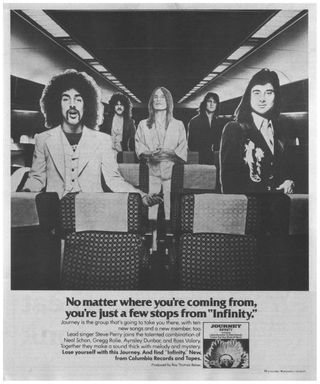
Not surprisingly, the biggest impact was the quality and strength of Steve Perry’s vocals.
“I certainly discovered the depth of multi-tracking, as I never had a chance to work on a 40-track machine before,” says Perry. “I’d never had the ability to do eight root notes and then bounce them to one track, then wipe those and do the eight thirds, wipe those then do eight fifths and eight octaves and so on – and suddenly you have a big stack like on Anytime . When they are layered and smeared tight they just really block up. Roy knew how to do that.”
But despite the good vibes and enthusiastic progress, the glue soon came unstuck when a studio prank backfired…
“One night we went out for sushi and drank a bit of Sake,” laughs Steve. “Roy drank a little bit more Sake than most of us, along with a couple of the road crew. When they got back, Scotty [Ross, roadie] remembered a story about how Roy had once chased Freddie Mercury around the studio with a fire extinguisher.
“So Scotty decided to be funny and grabbed one of the studio extinguishers and chased Roy. Then Roy grabbed an extinguisher to reciprocate and fired it off, but it was one of those dry chemical types. The next thing we knew was that we couldn’t breathe – it had sucked the oxygen right out of the room and we couldn’t see in front of us for the smoke. So we ran outside thinking, ‘Oh my God, what the hell happened there?’ After a while we walked back in and the place looked like it had snowed, everything was covered in white powder. The problem was that the console, the recording tape and everything had this fine, very abrasive powder all over it.
“The Neve console was ruined. We had to quickly remove the tape because the dust would eat the oxide, so we moved to Cherokee Studios in Los Angeles to finish the vocals.”
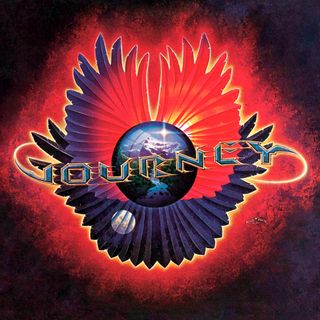
With the album completed, a design makeover followed. The band brought in renowned San Francisco artists Alton Kelley and Stanley Mouse (real name Stanley George Miller). The duo had first hooked up with San Francisco’s counter-cultural doyens the Grateful Dead (designing their album covers) and legendary West Coast promoter Bill Graham (designing his gig posters). During the early 70s they had formed the Mouse Studio, and helped rebrand Journey by designing and standardising their cover art, including Infinity’s colourful flaming wings. The pair also came up with a Journey logo.
Says Perry: “Bruce Lundvall was the president of Columbia at the time, and he quipped that, in order for us to make another record with me singing, we would have to sell one million units. Hence the reason we stayed on the road for 298 shows that year. We started touring in February and didn’t come home for almost a year.
“ Wheel In The Sky was the first single. Neal and I went to a pizza place, and I went over to the jukebox and saw a Wheel In The Sky 45 in that machine – an ecstatic feeling. I didn’t tell Neal, I just put two quarters in, pushed the button and sat down and the song started. Neal looked at me and started laughing. It was a monumental moment. Back then if you were starting to show up in jukeboxes it was a sign that you might be finally starting to happen. My mom had an eight track in her car and she would play the cassette to everybody saying, ‘That’s my Steven.’”
Although the tour emphasised the band’s growing stature, it also highlighted that while Aynsley Dunbar was an exceptional rhythm king, he was perhaps too complex for the way Journey’s music was developing.
“Van Halen were the opening act on the tour,” remembers Steve. “They were a brand new band back then. We were doing 3,000-seat auditoriums and they were killing us every night. It was eye-opening. We were keeping up with them, but they were certainly making us be a better band. They were so musically simple.
“Well, I was a drummer before becoming a singer and one of the things about being a drummer is that I’m kind of hard on other drummers. Foundationally you can have a really great band, but if the drummer doesn’t measure up you’re not going to do very well. But if you have a mediocre band and a great drummer you’re going to do better. So we’d do soundchecks and sometimes Aynsley might not be there or be off doing something like radio promotion and I would do soundcheck for him – set his drums up and play a few songs. It started to be apparent to Neal and to myself that the band sounded different with me because I’m a slamming R&B-style drummer, as opposed to a jazz-fusion drummer like Aynsley.
“Aynsley’s style had been perfect up to when the band changed style. As the music evolved, we started to work up some of our new ideas with me playing drums, and they didn’t sound as good with Aynsley playing them. So we toyed with that for a while, but occasionally we kept being reminded about it while jamming new ideas for the follow-up record. And then we saw Steve Smith playing drums with Ronnie Montrose, who was also one of our support bands, and we thought, ‘Help, what do we do now? Because this guy sounds like the cat.’ We started hanging out a lot – the next thing is we made a switch.”
Journey’s run of success continued with their follow-up albums, from Evolution through to blockbusters such as Escape, Frontiers and Raised On Radio .
Their continued uphill trajectory was an unprecedented triumph, propelling the band into increasingly larger arenas and stadiums, right the way through to the late 80s, before they implemented a (theoretically) indefinite and somewhat strained hiatus. With hindsight, the appointment of Steve Perry and the creation of the Infinity album was one of the pivotal moments in the development of modern rock.
“I liked the songs, I liked the edge and I liked the dual vocal stuff,” reflects Gregg Rolie. “The band had a lot of colour to it and I think we could have explored more of that. Infinity for me personally was a big change; writing songs for singing rather than writing songs for playing. The addition of harmonies and multi-track vocals… we’d never sung harmonies like that before.
“Also, the songs were great: Patiently, Winds Of March, Lights … Later it started going away from where I thought it should have been, but I’m only one member of the band so you’ve gotta roll with it. On Infinity there was still solo and instrumental work influencing how it sounded – it still had that vibe of being alive. It was always powerful. We actually carried that edge into the Evolution album.”
“If I had the chance I would do it all again exactly the same way,” says Steve Perry in conclusion. “I swear to God. I would not hesitate for a minute.”
Journey are on tour now. This article was first published in Classic Rock presents AOR, issue 11
Derek’s lifelong love of metal goes back to the ’70s when he became a UK underground legend for sharing tapes of the most obscure American bands. After many years championing acts as a writer for Kerrang! , Derek moved to New York and worked in A&R at Atco Records, signing a number of great acts including the multi-platinum Pantera and Dream Theater. He moved back to the UK and in 2006 started Rock Candy Records, which specialises in reissues of rock and metal albums from the 1970s and 1980s.
“Like Volare, the marriage of voices flies free in a spirit of joy.” Punk icons Iggy Pop and Siouxsie Sioux have re-recorded The Passenger for an ice cream advert
Eddie Van Halen was a Meshuggah fan, according to son Wolfgang: “He said, ‘The drummer better be paid the most!’”
Can headphones cause hearing loss? "It's more than likely that you are listening to your favourite bands at ear-damaging levels, and you might not even be aware of it"
Most Popular
- Longest Active Touring Streaks
- Crue Album Vince Neil Hates
- Rolling Stones Tour Kickoff
- Rockers Toured in 1984 & 2024
- Wetton's Widow on New Asia

Who Sang the Most Journey Songs? Lead Vocal Totals
Journey will always be associated most closely with Steve Perry . Over the years, however, they've actually had a total of six frontmen. Four other members, including stalwart Neal Schon , have also taken a turn at the mic.
Gregg Rolie (1973-80) was the group's first singer, though his role quickly diminished when Perry arrived in 1977. Over the next 20 years, Perry would take Journey to unprecedented commercial heights, though it ultimately became an off-and-on relationship: Journey were inactive from 1987-91 and then again until 1995.
A pair of those other lead singers, Robert Fleischman (1977) and Jeff Scott Soto (2006-07), didn't last long enough to do much in the recording studio. Journey also had a second Steve as their singer – Steve Augeri (1998–2006) – before settling in with Arnel Pineda , their longest-tenured frontman, in 2007.
Which one sang the most Journey songs? We dove into their official catalog to find out, focusing on officially released new songs, including B-sides, soundtrack recordings, bonus tracks and a live song that appeared only on 1981's Captured . We stayed away from re-recordings and in-concert versions of earlier songs, as well as the leftover demos that dotted Journey's expansive Time3 box set, since those don't count as original material.
Journey (1975)
Gregg Rolie - 5: "Of a Lifetime," "In the Morning Day," "To Play Some Music," "In My Lonely Feeling/Conversations" and "Mystery Mountain"
Journey debuted with co-founder Gregg Rolie firmly entrenched as their frontman, but this self-titled debut also made room for two lengthy fusion-rock instrumentals – "Kohoutek" and "Topaz." The former, co-written by Rolie and Neal Schon, became an in-concert staple for years. Still, these musical flights of fancy ultimately cut into Rolie's lead-vocal totals, as did Journey's subsequent decision to showcase other singers.
Look Into the Future (1976)
Gregg Rolie - 8: "On a Saturday Nite," "It's All Too Much," "Anyway," "She Makes Me (Feel Alright)," "You're on Your Own," "Look into the Future," "Midnight Dreamer" and "I'm Gonna Leave You"
The best effort from the pre-Perry lineup is also Rolie's most consistent showcase, with a most-ever eight vocals. Look Into the Future found the band in an appropriately forward-thinking mood, as it took a more song-oriented approach. That said, Journey still unleashed an eight-minute title track – the longest song they'd ever recorded – and the titanic closing song , "I'm Gonna Leave You."
Next (1977)
Gregg Rolie - 5: "Spaceman," "People," "Here We Are," "Hustler" and "Next" Neal Schon - 2: "I Would Find You" and "Karma"
Rolie began sharing the mic well before Steve Perry arrived, as guitarist Neal Schon takes over for two of his four career lead vocals. They also returned to instrumentals, including "Nickel and Dime" – which manager Herbie Herbert consistently described as the uncredited inspiration for Rush 's "Tom Sawyer." It was a sign of things to come: Rolie continued with Journey for five more releases, but never had another solo vocal.
Infinity (1978)
Steve Perry - 10: "Lights," "Feeling That Way" (with Rolie), "Anytime (with Rolie), "La Do Da," "Patiently," "Wheel in the Sky," "Somethin' to Hide," "Winds of March," "Can Do" and "Opened the Door" Gregg Rolie - 2: "Feeling That Way" (with Perry) and "Anytime" (with Perry)
The addition of Perry shifted the vocal focus decisively, as Rolie's total makes clear. Within just two albums, the new guy almost eclipsed Rolie for career lead songs. In fact, Journey would release eight more records – including a movie soundtrack and a live project – before anyone not named Steve Perry sang another note. Fans responded by sending Infinity to the edge of the Top 20, a best-ever finish at the time.
Evolution (1979)
Steve Perry - 10: "Too Late," "Lovin', Touchin', Squeezin'," "City of the Angels," "When You're Alone (It Ain't Easy)," "Sweet and Simple," "Lovin' You Is Easy," "Just the Same Way" (with Rolie), "Do You Recall," "Daydream" and "Lady Luck" Gregg Rolie - 1: "Just the Same Way" (with Perry)
They switched out a member, as former Ronnie Montrose drummer Steve Smith took over for Aynsley Dunbar, but otherwise kept apace with a huge musical shift. This album confirmed Journey's move from hard-rocking jam band to multi-platinum pop stars: "Lovin', Touchin', Squeezin'" from Evolution became their first Top 20 hit single.
Departure (1980)
Steve Perry - 12: "Any Way You Want It," "Walks Like a Lady," "Someday Soon" (with Rolie), "People and Places" (with Schon), "Precious Time," "Where Were You," "I'm Cryin'," "Line of Fire," "Departure," "Good Morning Girl," "Stay Awhile," "Handmade Love" Gregg Rolie - 1: "Someday Soon" (with Perry) Neal Schon - 1: "People and Places" (with Perry)
Rolie shares the mic one last time on the utterly gorgeous "Someday Soon," but this album's No. 8 finish had everything to do with Perry's turn on the radio favorite "Any Way You Want It." Like both of its predecessors, Departure sold 3 million copies – an impressive figure, but also one that indicated a commercial plateau. Journey issued two place-keeping projects, including a movie soundtrack and a concert recording, while plotting their next move.
Captured (1981)
Steve Perry - 2: "Dixie Highway" and "The Party's Over (Hopelessly in Love)"
This live document celebrating Journey's early years included two previously unreleased songs, both featuring Perry at the mic. Rolie had already exited by the time Captured arrived, so "The Party's Over" – a new studio addition – featured a different keyboardist: Stevie Roseman later worked with Schon and Valory on solo projects.
Escape (1981)
Steve Perry - 10: "Don't Stop Believin'," "Stone in Love," "Who's Crying Now," "Keep On Runnin'," "Still They Ride," "Escape," "Lay It Down," "Dead or Alive," "Mother, Father," "Open Arms"
Keyboardist Jonathan Cain came over from the Babys to give Journey another creative voice, but he didn't possess the vocal chops of his predecessor. Steve Perry continued to dominate every subsequent Journey album he appeared on. Together, however, they found another commercial gear as the career-making Escape sold as many copies in the U.S. as Infinity, Evolution and Departure combined.
Frontiers (1983)
Steve Perry - 10: "Separate Ways (Worlds Apart)," "Send Her My Love," "Chain Reaction," "After the Fall," "Faithfully," "Edge of the Blade," "Troubled Child," "Back Talk," "Frontiers," "Rubicon"
Journey entered a period of stops and starts. The next trio of albums all sold very well. In fact, they scored the band's highest-ever chart position in the U.K. with Frontiers . But success can sometimes be a double-edged sword: Their subsequent total of nine platinum awards in the states only equaled what Escape had done all by itself. Under enormous pressure, Journey's most successful lineup fracturing along the way.
Raised on Radio (1986)
Steve Perry - 11: "Girl Can't Help It," "Positive Touch," "Suzanne," "Be Good to Yourself," "Once You Love Somebody," "Happy to Give," "Raised on Radio," "I'll Be Alright Without You," "It Could Have Been You," "The Eyes of a Woman" and "Why Can't This Night Go On Forever"
Now trimmed to a core trio of Jonathan Cain, Steve Perry and Neal Schon, Raised on Radio featured drummer Steve Smith on only three of its 11 tracks – and didn't include co-founding bassist Ross Valory at all. The project ended up producing four Top 20 singles, becoming the fourth of five consecutive Top 10 Journey albums, but a lengthy split followed.
Trial by Fire (1996)
Steve Perry - 15: "Message of Love," "One More," "When You Love a Woman," "If He Should Break Your Heart," "Forever in Blue," "Castles Burning," "Don't Be Down on Me Baby," "Still She Cries," "Colors of the Spirit," "When I Think of You," "Easy to Fall," "Can't Tame the Lion," "It's Just the Rain," "Trial by Fire," and "Baby I'm a Leavin' You"
Journey reformed a decade later with their Escape / Frontiers -era lineup intact, scoring a No. 12 hit with the Grammy-nominated "When You Love a Woman." Unfortunately, the good times wouldn't last: Perry elected not to take part in a companion tour. Journey decided to move on without him.
Arrival (2000)
Steve Augeri - 15: "Higher Place," "All the Way," "Signs of Life," "All the Things," "Loved by You," "Livin' to Do," "World Gone Wild," "I Got a Reason," "With Your Love," "Lifetime of Dreams," "Live and Breathe," "Nothin' Comes Close," "To Be Alive Again," "Kiss Me Softly" and "We Will Meet Again."
Journey found a new guy who could manage the old songs in concert, and he was even named Steve. At the same time, tracks like "All the Way" showed Augeri could maintain the band's now-signature pop-rock sound. "Higher Place" even recalled some of their proggier early moments. But fans apparently weren't sold, as Arrival became the first Journey album not to at least go gold since 1977's Next .
Red 13 (2002)
Steve Augeri - 4: State of Grace," "The Time," "Walkin' Away From the Edge" and "I Can Breathe"
This is a tour-de-force EP for Augeri, who got to show off his vocal prowess on songs that delve into Journey's career-spanning penchant for jam-band excursions, melodic rock, hard-rocking blues and soaring balladry. ("Walkin' Away From the Edge" was co-written by an uncredited Geoff Tate from Queensryche .) The only knock is that those four things happen over the course of just four songs.
Generations (2005)
Steve Augeri - 8: "Faith in the Heartland," "The Place in Your Heart," "Butterfly (She Flies Alone)," "Believe," "Knowing That You Love Me," "Out of Harms Way," "Better Together" and "Beyond the Clouds" Neal Schon, 1: "In Self-Defense" Deen Castronovo, 1: "A Better Life" Jonathan Cain - 1: "Every Generation" Ross Valory - 1: "Gone Crazy"
The underrated Augeri ends his time in Journey with an album where everybody – literally everybody , even bassist Ross Valory – gets a turn at the mic. Augeri managed to eke out a minor hit with "Faith in the Heartland," but only drummer Deen Castronovo really stands out among the others on Generations . Adding insult to injury for Augeri: This is Journey's worst-charting U.S. album ever.
Revelation (2008)
Arnel Pineda - 9: "Never Walk Away," "Like a Sunshower," "Change for the Better," "Wildest Dream," "After All These Years," "Where Did I Lose Your Love," "What I Needed," "What It Takes to Win," "Turn Down the World Tonight"
Stuck in a commercial dive, Neal Schon turned to YouTube to find Augeri's replacement. Arnel Pineda, a big-voiced Filipino unknown, ended up becoming Journey's longest-tenured singer. But not before being asked to redo a whopping 12 previously recorded songs on Revelation , including the very-recent "Faith in the Heartland." He fared much better on the originals, finally pushing Journey back to platinum-selling status.
Eclipse (2011)
Arnel Pineda - 11: "City of Hope," "Edge of the Moment," "Chain of Love," "Tantra," "Anything Is Possible," "Resonate," "She's a Mystery," "Human Feel," "Ritual," "To Whom It May Concern" and "Someone"
Eclipse initially rose to No. 13 on the album chart before everybody realized it lacked enough of the signature ballads that pushed Journey to out-sized fame in the '80s. Still, Pineda showed he could go toe-to-toe with a resurgent Schon on a series of songs that recalled the furious energy of Journey's earliest recordings. The album ends, appropriately enough, with an instrumental.
Soundtracks, B-Sides and Bonus Tracks
Steve Perry - 10: "Destiny," "Sand Castles" and "Little Girl" from 1980's 'Dream, After Dream'; "Natural Thing" (b-side, 1981's "Don't Stop Believin'"); "La Raza del Sol" (b-side of 1982's "Still They Ride"); "Only Solutions" from 1982's 'Tron'; "Ask the Lonely" from 1983's 'Two of a Kind'; "Liberty" (bonus track from 1983's 'Frontiers'); and "Only the Young" from 1985's 'Vision Quest'; "I Can See It in Your Eyes" from 1996's 'Trial by Fire' Steve Augeri - 1: "Remember Me" from 1998's 'Armageddon' Deen Castronovo, 1: "Never Too Late" from 2005's 'Generations' Jonathan Cain - 1: "Pride of the Family" from 2005's 'Generations' Arnel Pineda - 1: "Let It Take You Back" from 2008's 'Revelation'
Dream, After Dream was a forgotten, mostly instrumental 1980 soundtrack that included Rolie's final studio work with the group, but the three tucked-away vocals were all reserved for Perry. "Little Girl," the rare moment that tried to connect their updated pop sound , was later included as a bonus track on an expanded reissue of Departure . "Only the Young," "Ask the Lonely and "Only Solution," key songs recorded during sessions for Frontiers , ended up on contemporary soundtracks instead. "I Can See It in Your Eyes" was a Japanese-only bonus track from Perry's finale with Journey. Augeri actually made his Journey debut on the soundtrack for Armageddon . Castronovo and Cain's songs were extras attached to Generations . "Let It Take You Back" was a bonus cut on Pineda's first album.
Journey Solo Albums Ranked
See Neal Schon Among Rock’s Forgotten Supergroups
More From Ultimate Classic Rock
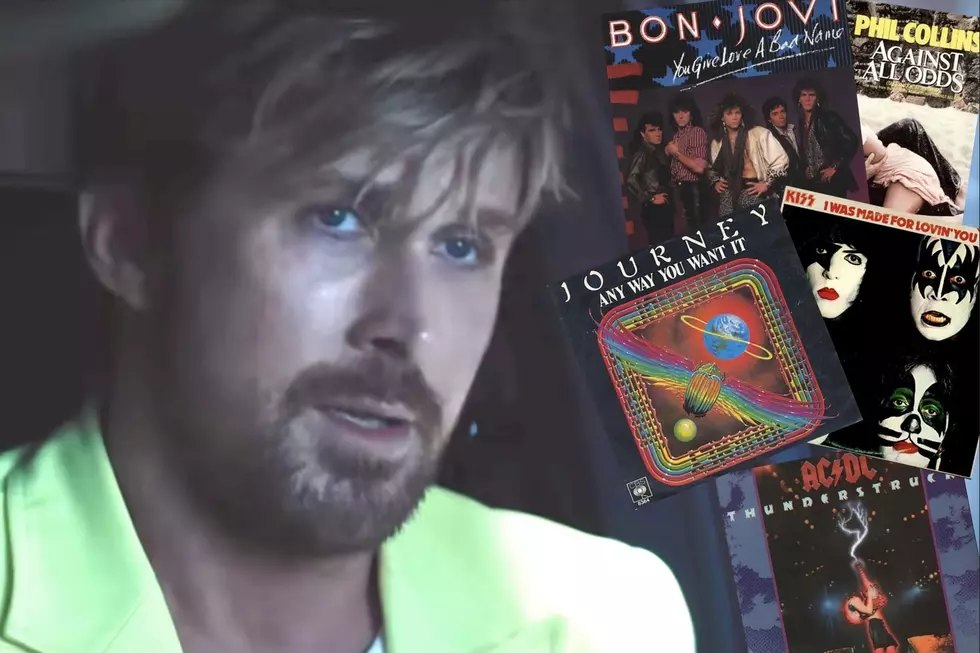

- Songwriter Interviews
- Song Writing
- Fact or Fiction
- They're Playing My Song
- Songfacts Pages
- Songwriting Legends
- Songfacts Podcast
- Amanda Flinner
- Bruce Pollock
- Corey O'Flanagan
- Dan MacIntosh
- Laura Antonelli
- Leslie Michele Derrough
- Maggie Grimason
- Nicole Roberge
- Roger Catlin
- Shawna Ortega
- Stephanie Myers
- Trevor Morelli
Anytime by Journey
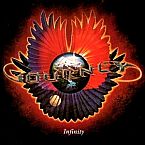
- Ooh, ooh anytime that you want me Ooh, ooh anytime that you need me Ooh, ooh anytime that you want me to Ooh, ooh anytime that you need me I'm standing here with my arms a mile wide Hoping and praying for you Listen to me and enlighten me I hope that you need me too, 'cause, Ooh, ooh anytime that you want me Ooh, ooh anytime that you want me Ooh, ooh anytime that you want me to Ooh, ooh anytime that you need me Give me all of your sunshine A spark is all I need To take away, all of the shadows Well what more can I say. Anytime at all Anytime at all Anytime at all Writer/s: Gregg Rolie, Neal Joseph Schon, Robert A. Fleischman, Roger Silver, Ross L. Valory Publisher: BMG Rights Management, Hipgnosis Songs Group Lyrics licensed and provided by LyricFind
- More songs from Journey
- More songs from 1978
- Anytime Songfacts
- Journey Artistfacts
Comments: 3
- Kaye from Alabama Most of the the lead singers for Journey since and including Steve Perry, have 'blown out' their voices. There's very few men, and women that can continue to sing with such a wide range for 300+ gigs a year, practice, warm ups, and recording. Freddie Mercury, if he were still with us ( but, his range had a lot to do with cultural, and religious exposure), and Micky Thomas best known for Jefferson Starship, now just Starship, and his first hit, Fooled Around and Fell in love, still has the range and power he had in the '70 when he was playing with my husband in local bands in N. Florida, S. Georgia. To name 2. Pat Benetar, classically trained, Ann Wilson, classically trained. Now, look up Tommy Shaw's version of 'Open Arms' That is on a copulation tribute album. You might just be impressed. Digging ditches is damn hard dirty work. Going on stage, whether you feel like it or not, cold, flu, stomach virus, migraine headache, strep throat, And performing like you feel absolutely wonderful and so very happy to be there, when you would rather be lying on the stage trying not to die, is the hardest job in the world. I work as a gardener, landscaping, basically ditch digging, and I am no where near exhausted, sick, and basically insane as I was when touring and singing with several well known bands and performers. I was a trained lyric soprano that learned to sing rock and some pop and country. Now my range is quite a bit lower than it was.
- Jim from Long Beach, Ca Gregg Rolie, The American Paul Carrack, he sings on hits for other bands(Journey/Santana) but remains faceless..Great voice and keyboard player..
- Dodge from Casper, Wy Gregg Rolie, though somehow not the most recognizable face of the two bands, founded and was the original singer for both supergroups Santana and Journey. He is the co-lead vocalist here, though he is the clear and recognizable singer on the timeless Santana smash Black Magic Woman.
More Songfacts:
Who you are jessie j.
Jessie J had a lyric from her song "Who You Are" tattooed on her hip:
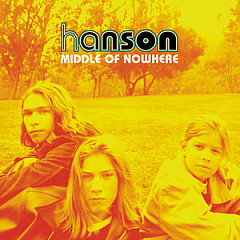
MMMbop Hanson
Zach Hanson was just 11 years and 7 months old when "MMMbop" topped the Hot 100, making him the youngest group member to co-write and perform a US #1 single.

At This Moment Billy Vera & the Beaters
"At This Moment" was first released by Billy Vera & the Beaters in 1981, and hit #79. After it was used in two episodes of Family Ties in 1985-1986, it went to #1.
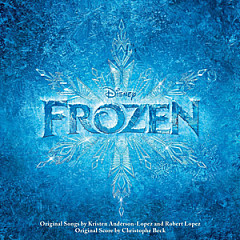
Let It Go Idina Menzel
The Frozen song "Let It Go" was recorded in 42 different languages for the movie's foreign releases. This earned it an entry in the 2016 Guinness World Records publication for "Most Languages Featured on a Single."
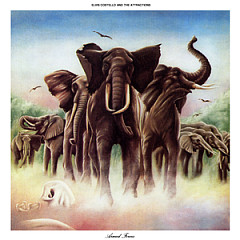
(What's So Funny 'Bout) Peace, Love, and Understanding Elvis Costello
"(What's So Funny 'Bout) Peace, Love, and Understanding" was written by Nick Lowe in 1974. The original version with his group Brinsley Schwarz was kind of somber, but Elvis Costello made it a classic with his 1978 uptempo take.

Gonna Get Over You Sara Bareilles
Jonah Hill directed the video for Sara Bareilles' song "Gonna Get Over You." It's a mash-up of Grease and West Side Story.
Editor's Picks

Gene Simmons of Kiss Songwriter Interviews
The Kiss rocker covers a lot of ground in this interview, including why there are no Kiss collaborations, and why the Rock Hall has "become a sham."
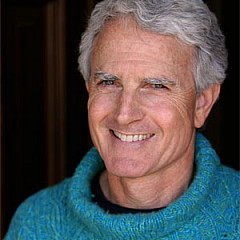
Billy Steinberg - "Like A Virgin" They're Playing My Song
The first of Billy's five #1 hits was the song that propelled Madonna to stardom. You'd think that would get you a backstage pass, wouldn't you?
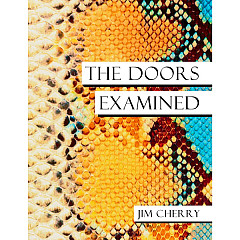
Deconstructing Doors Songs With The Author Of The Doors Examined Song Writing
Doors expert Jim Cherry, author of The Doors Examined, talks about some of their defining songs and exposes some Jim Morrison myths.
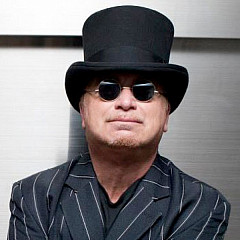
David Paich of Toto Songwriter Interviews
Toto's keyboard player explains the true meaning of "Africa" and talks about working on the Thriller album.

Kristian Bush of Sugarland Songwriter Interviews
Kristian talks songwriting technique, like how the chorus should redefine the story, and how to write a song backwards.

Eagles Lyrics Quiz Music Quiz
Lots of life lessons in these Eagles lyrics - can you match them to the correct song?
Songfacts® Newsletter
A monthly update on our latest interviews, stories and added songs
Information
- Terms of Service
- Our Privacy Policy
- Google Privacy Policy
- Songfacts API
- Music History Calendar
- Song Licensing
- Affiliate Disclosure
- Privacy Manager
- X (Twitter)
Contribution
- Message Boards
- Songfacts Writers
©2024 Songfacts, LLC
- Share full article
Advertisement
Supported by
Steve Perry Walked Away From Journey. A Promise Finally Ended His Silence.

By Alex Pappademas
- Sept. 5, 2018
MALIBU, Calif. — On the back patio of a Greek restaurant, a white-haired man making his way to the exit paused for a second look at one of his fellow diners, a man with a prominent nose who wore his dark hair in a modest pompadour.
“You look a lot like Steve Perry,” the white-haired man said.
“I used to be Steve Perry,” Steve Perry said.
This is how it goes when you are Steve Perry. Everyone is excited to see you, and no one can quite believe it. Everyone wants to know where you’ve been.
In 1977, an ambitious but middlingly successful San Francisco jazz-rock band called Journey went looking for a new lead singer and found Mr. Perry, then a 28-year-old veteran of many unsigned bands. Mr. Perry and the band’s lead guitarist and co-founder, Neal Schon, began writing concise, uplifting hard rock songs that showcased Mr. Perry’s clean, powerful alto, as operatic an instrument as pop has ever seen. This new incarnation of Journey produced a string of hit singles, released eight multiplatinum albums and toured relentlessly — so relentlessly that in 1987, a road-worn Mr. Perry took a hiatus, effectively dissolving the band he’d helped make famous.
He did not disappear completely — there was a solo album in 1994, followed in 1996 by a Journey reunion album, “Trial by Fire.” But it wasn’t long before Mr. Perry walked away again, from Journey and from the spotlight. With his forthcoming album, “Traces,” due in early October, he’s breaking 20 years of radio silence.
Over the course of a long midafternoon lunch — well-done souvlaki, hold all the starches — Mr. Perry, now 69, explained why he left, and why he’s returned. He spoke of loving, and losing and opening himself to being loved again, including by people he’s never met, who know him only as a voice from the Top 40 past.
And when he detailed the personal tragedy that moved him to make music again, he talked about it in language as earnest and emotional as any Journey song:
“I thought I had a pretty good heart,” he said, “but a heart isn’t really complete until it’s completely broken.”
IN ITS ’80S heyday, Journey was a commercial powerhouse and a critical piñata. With Mr. Perry up front, slinging high notes like Frisbees into the stratosphere, Journey quickly became not just big but huge . When few public figures aside from Pac-Man and Donkey Kong had their own video game, Journey had two. The offices of the group’s management company received 600 pieces of Journey fan mail per day.
The group toured hard for nine years. Gradually, that punishing schedule began to take a toll on Journey’s lead singer.
“I never had any nodules or anything, and I never had polyps,” Mr. Perry said, referring to the state of his vocal cords. He looked around for some wood to knock, then settled for his own skull. The pain, he said, was more spiritual than physical.
[ Never miss a pop music story: Sign up for our weekly newsletter, Louder. ]
As a vocalist, Mr. Perry explained, “your instrument is you. It’s not just your throat, it’s you . If you’re burnt out, if you’re depressed, if you’re feeling weary and lost and paranoid, you’re a mess.”
“Frankly,” Mr. Schon said in a phone interview, “I don’t know how he lasted as long as he did without feeling burned out. He was so good, doing things that nobody else could do.”
On Feb. 1, 1987, Mr. Perry performed one last show with Journey, in Anchorage. Then he went home.
Mr. Perry was born in Hanford, Calif., in the San Joaquin Valley, about 45 minutes south of Fresno. His parents, who were both Portuguese immigrants, divorced when he was 8, and Mr. Perry and his mother moved in next door to her parents’. “I became invisible, emotionally,” Mr. Perry said. “And there were places I used to hide, to feel comfortable, to protect myself.”
Sometimes he’d crawl into a corner of his grandparents’ garage with a blanket and a flashlight. But he also found refuge in music. “I could get lost in these 45s that I had,” Mr. Perry said. “It turned on a passion for music in me that saved my life.”
As a teen, Mr. Perry moved to Lemoore, Calif., where he enjoyed an archetypally idyllic West Coast adolescence: “A lot of my writing, to this day, is based on my emotional attachment to Lemoore High School.”
There he discovered the Beatles and the Beach Boys, went on parked-car dates by the San Joaquin Valley’s many irrigation canals, and experienced a feeling of “freedom and teenage emotion and contact with the world” that he’s never forgotten. Even a song like “No Erasin’,” the buoyant lead single from his new LP has that down-by-the-old-canal spirit, Mr. Perry said.
And after he left Journey, it was Lemoore that Mr. Perry returned to, hoping to rediscover the person he’d been before subsuming his identity within an internationally famous rock band. In the beginning, he couldn’t even bear to listen to music on the radio: “A little PTSD, I think.”
Eventually, in 1994, he made that solo album, “For the Love of Strange Medicine,” and sported a windblown near-mullet and a dazed expression on the cover. The reviews were respectful, and the album wasn’t a flop. With alternative rock at its cultural peak, Mr. Perry was a man without a context — which suited him just fine.
“I was glad,” he said, “that I was just allowed to step back and go, O.K. — this is a good time to go ride my Harley.”
JOURNEY STAYED REUNITED after Mr. Perry left for the second time in 1997. Since December 2007, its frontman has been Arnel Pineda, a former cover-band vocalist from Manila, Philippines, who Mr. Schon discovered via YouTube . When Journey was inducted into the Rock & Roll Hall of Fame last April, Mr. Pineda sang the 1981 anthem “Don’t Stop Believin’,” not Mr. Perry. “I’m not in the band,” he said flatly, adding, “It’s Arnel’s gig — singers have to stick together.”
Around the time Mr. Pineda joined the band, something strange had happened — after being radioactively unhip for decades, Journey had crept back into the zeitgeist. David Chase used “Don’t Stop Believin’” to nerve-racking effect in the last scene of the 2007 series finale of “The Sopranos” ; when Mr. Perry refused to sign off on the show’s use of the song until he was told how it would be used, he briefly became one of the few people in America who knew in advance how the show ended.
“Don’t Stop Believin’” became a kind of pop standard, covered by everyone from the cast of “Glee” to the avant-shred guitarist Marnie Stern . Decades after they’d gone their separate ways, Journey and Mr. Perry found themselves discovering fans they never knew they had.
Mark Oliver Everett, the Los Angeles singer-songwriter who performs with his band Eels under the stage name E, was not one of them, at first.
“When I was young, living in Virginia,” Mr. Everett said, “Journey was always on the radio, and I wasn’t into it.”
So although Mr. Perry became a regular at Eels shows beginning around 2003, it took Mr. Everett five years to invite him backstage. He’d become acquainted with Patty Jenkins, the film director, who’d befriended Mr. Perry after contacting him for permission to use “Don’t Stop Believin’” in her 2003 film “Monster.” (“When he literally showed up on the mixing stage the next day and pulled up a chair next to me, saying, ‘Hey I really love your movie. How can I help you?’ it was the beginning of one of the greatest friendships of my life,” Ms. Jenkins wrote in an email.) Over lunch, Ms. Jenkins lobbied Mr. Everett to meet Mr. Perry.
They hit it off immediately. “At that time,” Mr. Everett said, “we had a very serious Eels croquet game in my backyard every Sunday.” He invited Mr. Perry to attend that week. Before long, Mr. Perry began showing up — uninvited and unannounced, but not unwelcome — at Eels rehearsals.
“They’d always bust my chops,” Mr. Perry said. “Like, ‘Well? Is this the year you come on and sing a couple songs with us?’”
At one point, the Eels guitarist Jeff Lyster managed to bait Mr. Perry into singing Journey’s “Lights” at one of these rehearsals, which Mr. Everett remembers as “this great moment — a guy who’s become like Howard Hughes, and just walked away from it all 25 years ago, and he’s finally doing it again.”
Eventually Mr. Perry decided to sing a few numbers at an Eels show, which would be his first public performance in decades. He made this decision known to the band, Mr. Everett said, not via phone or email but by showing up to tour rehearsals one day carrying his own microphone. “He moves in mysterious ways,” Mr. Everett observed.
For mysterious Steve Perry reasons, Mr. Perry chose to make his long-awaited return to the stage at a 2014 Eels show at the Fitzgerald Theater in St. Paul, Minn. During a surprise encore, he sang three songs, including one of his favorite Eels tunes, whose profane title is rendered on an edited album as “It’s a Monstertrucker.”
“I walked out with no anticipation and they knew me and they responded, and it was really a thrill,” Mr. Perry said. “I missed it so much. I couldn’t believe it’d been so long.”
“It’s a Monstertrucker” is a spare song about struggling to get through a lonely Sunday in someone’s absence. For Mr. Perry, it was not an out-of-nowhere choice.
In 2011, Ms. Jenkins directed one segment of “Five,” a Lifetime anthology film about women and breast cancer. Mr. Perry visited her one day in the cutting room while she was at work on a scene featuring real cancer patients as extras. A woman named Kellie Nash caught Mr. Perry’s eye. Instantly smitten, he asked Ms. Jenkins if she would introduce them by email.
“And she says ‘O.K., I’ll send the email,’ ” Mr. Perry said, “but there’s one thing I should tell you first. She was in remission, but it came back, and it’s in her bones and her lungs. She’s fighting for her life.”
“My head said, ‘I don’t know,’ ” Mr. Perry remembered, “but my heart said, ‘Send the email.’”
“That was extremely unlike Steve, as he is just not that guy,” Ms. Jenkins said. “I have never seen him hit on, or even show interest in anyone before. He was always so conservative about opening up to anyone.”
A few weeks later, Ms. Nash and Mr. Perry connected by phone and ended up talking for nearly five hours. Their friendship soon blossomed into romance. Mr. Perry described Ms. Nash as the greatest thing that ever happened to him.
“I was loved by a lot of people, but I didn’t really feel it as much as I did when Kellie said it,” he said. “Because she’s got better things to do than waste her time with those words.”
They were together for a year and a half. They made each other laugh and talked each other to sleep at night.
In the fall of 2012, Ms. Nash began experiencing headaches. An MRI revealed that the cancer had spread to her brain. One night not long afterward, Ms. Nash asked Mr. Perry to make her a promise.
“She said, ‘If something were to happen to me, promise me you won’t go back into isolation,’ ” Mr. Perry said, “because that would make this all for naught.”
At this point in the story, Mr. Perry asked for a moment and began to cry.
Ms. Nash died on Dec. 14, 2012, at 40. Two years later, Mr. Perry showed up to Eels rehearsal with his own microphone, ready to make good on a promise.
TIME HAS ADDED a husky edge to Mr. Perry’s angelic voice; on “Traces,” he hits some trembling high notes that bring to mind the otherworldly jazz countertenor “Little” Jimmy Scott. The tone suits the songs, which occasionally rock, but mostly feel close to their origins as solo demos Mr. Perry cut with only loops and click tracks backing him up.
The idea that the album might kick-start a comeback for Mr. Perry is one that its maker inevitably has to hem and haw about.
“I don’t even know if ‘coming back’ is a good word,” he said. “I’m in touch with the honest emotion, the love of the music I’ve just made. And all the neurosis that used to come with it, too. All the fears and joys. I had to put my arms around all of it. And walking back into it has been an experience, of all of the above.”
Find the Right Soundtrack for You
Trying to expand your musical horizons take a listen to something new..
Kathleen Hanna’s punk rock says a lot. There’s more in her book .
“The Tortured Poets Department” has shifted the Taylor Swift debate .
12 new songs you need to hear, including unearthed Johnny Cash.
Jazz saved the bassist Luke Stewart . Now he’s working to rescue others.
Mdou Moctar ’s guitar is a screaming siren against Africa’s colonial legacy.

IMAGES
VIDEO
COMMENTS
Anytime by Journey song meaning, lyric interpretation, video and chart position ... Kaye from Alabama Most of the the lead singers for Journey since and including Steve Perry, have ... Casper, Wy Gregg Rolie, though somehow not the most recognizable face of the two bands, founded and was the original singer for both supergroups Santana and ...
Released: March 1978 [2] "Anytime". Released: June 1978. "Lights". Released: August 1978 [3] Infinity is the fourth studio album by American rock band Journey, released in January 1978 by Columbia Records. It was the band's first album with vocalist Steve Perry and the last to feature drummer Aynsley Dunbar .
Current Lead Singer: Arnel Pineda. Following Steve Perry's departure in 1987, Journey experienced a series of lead singer changes. Steve Augeri, known for his vocal range and stage charisma, took over from 1998 to 2006. Jeff Scott Soto briefly joined the band in 2006, leaving his mark with his distinctive style.
Stephen Ray Perry (born January 22, 1949) is an American singer and songwriter. He was the lead singer and frontman of the rock band Journey during their most successful years from 1977 to 1987, and again from 1995 to 1998. He also wrote/co-wrote several Journey hit songs. Perry had a successful solo career between the mid-1980s and mid-1990s, made sporadic appearances in the 2000s, and ...
Steve Perry was the lead singer of pop rock band Journey from 1977 to 1987. He is known for having a wide vocal range, which can be heard on such popular hits as "Don't Stop Believin'" and "Oh ...
Patiently. "The first song I ever wrote with the band. Herbie had flown me out to see the band in Denver, Colorado. After the show, Neal and I went back to the hotel room and we sketched out that idea. The lyrics explain that I was waiting for their [Journey's] light to shine on me. It's about me waiting and ready to walk out there and ...
"Feeling That Way" was a single released by the American rock band Journey in 1978 from the group's fourth album, "Infinity". The song starts out with Gregg...
Anytime by Journey is a timeless power ballad that has captivated audiences since its release in 1979. Penned by lead vocalist Steve Perry and guitarist Neal Schon, the song delves into the depths of love and heartbreak, resonating with listeners on a profound level. With its emotional lyrics and powerful melodies, Anytime has become an anthem ...
"Feeling That Way" and "Anytime" from the "Infinity" album, performed by Journey on The Midnight Special in 1978. Steve Perry and Gregg Rolie share lead on b...
"Anytime'' by JourneyListen to Journey: https://journey.lnk.to/listenYDWatch more Journey videos: https://Journey.lnk.to/listenYD/youtubeSubscribe to the off...
In "Feeling That Way", Perry sang a duet with keyboardist Gregg Rolie, who sings lead vocals on "Anytime". "Patiently" was the first song Perry and Neal Schon wrote together.
Ooh, ooh, anytime that you need me. [Chorus] Ooh, ooh, anytime that you want me to. Ooh, ooh, anytime that you need me. [Verse 1: Gregg Rolie] I'm standing here with my arms a mile wide. Hoping ...
Journey Frontman Arnel Pineda on the Band's New Record, Dreams of a Steve Perry Reunion. "I'm delivering on the legacy that the Voice [Steve Perry] has left behind," says Arnel Pineda. "Meeting ...
Classic Rock. Start believin': The story of Journey's Infinity album. By Derek Oliver. ( Classic Rock ) published 24 August 2018. By 1978, Journey had a loyal muso following but were still looking for their breakthrough. What they needed was a singer would could turn their improvisations into anthems.
Journey is an American rock band from San Francisco, California.Formed in February 1973 as the Golden Gate Rhythm Section, the group was renamed Journey in the summer and originally included keyboardist and vocalist Gregg Rolie, lead guitarist Neal Schon, rhythm guitarist George Tickner, bassist Ross Valory and drummer Prairie Prince.The band's lineup as of 2021 features Schon, alongside ...
Lead Vocal Totals. Nick DeRiso Published: March 25, 2020. Paul Natkin / Gabe Palacio / Ethan Miller / Michael Putland, Getty Images. Journey will always be associated most closely with Steve Perry ...
Artist: JourneyAlbum: InfinityTrack: 03Official site: http://www.journeymusic.comiTunes: https://itunes.apple.com/us/album/infinity/id170108857Infinity is th...
Listen to me and enlighten me. I hope that you need me too, 'cause, Ooh, ooh anytime that you want me. Ooh, ooh anytime that you want me. Ooh, ooh anytime that you want me to. Ooh, ooh anytime that you need me. Give me all of your sunshine. A spark is all I need. To take away, all of the shadows.
In 1977, an ambitious but middlingly successful San Francisco jazz-rock band called Journey went looking for a new lead singer and found Mr. Perry, then a 28-year-old veteran of many unsigned ...
1.7 1998-2007: Lead singer and drummer replaced, Arrival and Generations. 1.8 2007-2019: Lead singer replaced with Arnel Pineda, ... In a press statement, the band later announced that Augeri had to step down as Journey's lead singer and leave the tour to recover. Augeri performed his last show with Journey on July 4 in Raleigh.
CHICAGO DAILY NEWS, FEBRUARY 4, 1978—Infinity is Journey's third release, it might as well be their first, as the clarity of production and the addition of a first-rate lead singer Steve Perry ...
Photo: Kevin Mazur 2017. Journey 's original vocalist and keyboardist, Gregg Rolie, is set to join the band when it hits the road next month for its North American "Freedom Tour 2023," according to guitarist Neal Schon — marking the first time has performed with the diamond-selling Rock and Roll Hall of Fame group in more than four decades.
Any Way You Want It. " Any Way You Want It " is a song by American rock band Journey, released in February 1980 as the lead single from the band's sixth album Departure (1980). Written by lead singer Steve Perry and guitarist Neal Schon, it peaked at number 23 on the US Billboard Hot 100 chart. [3]